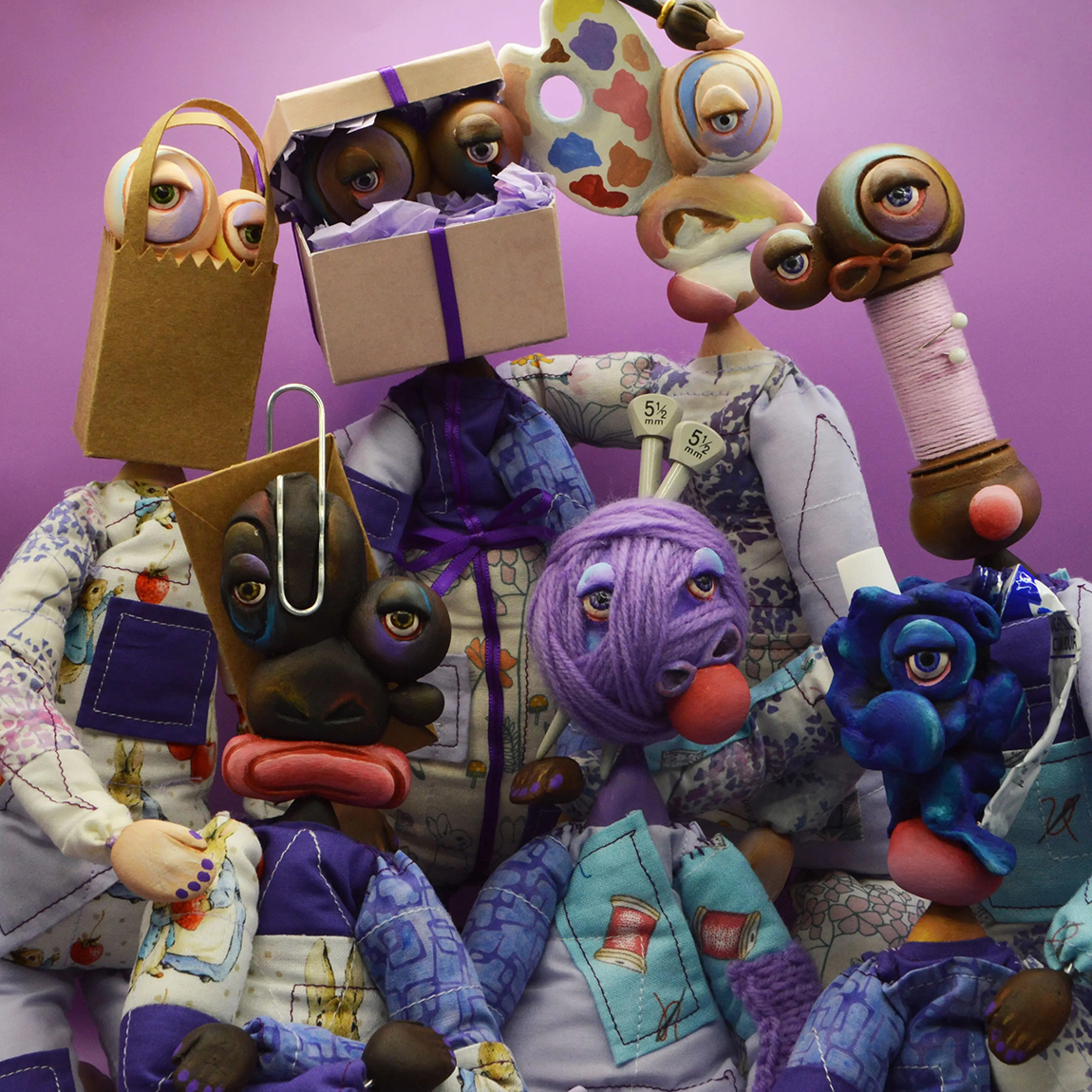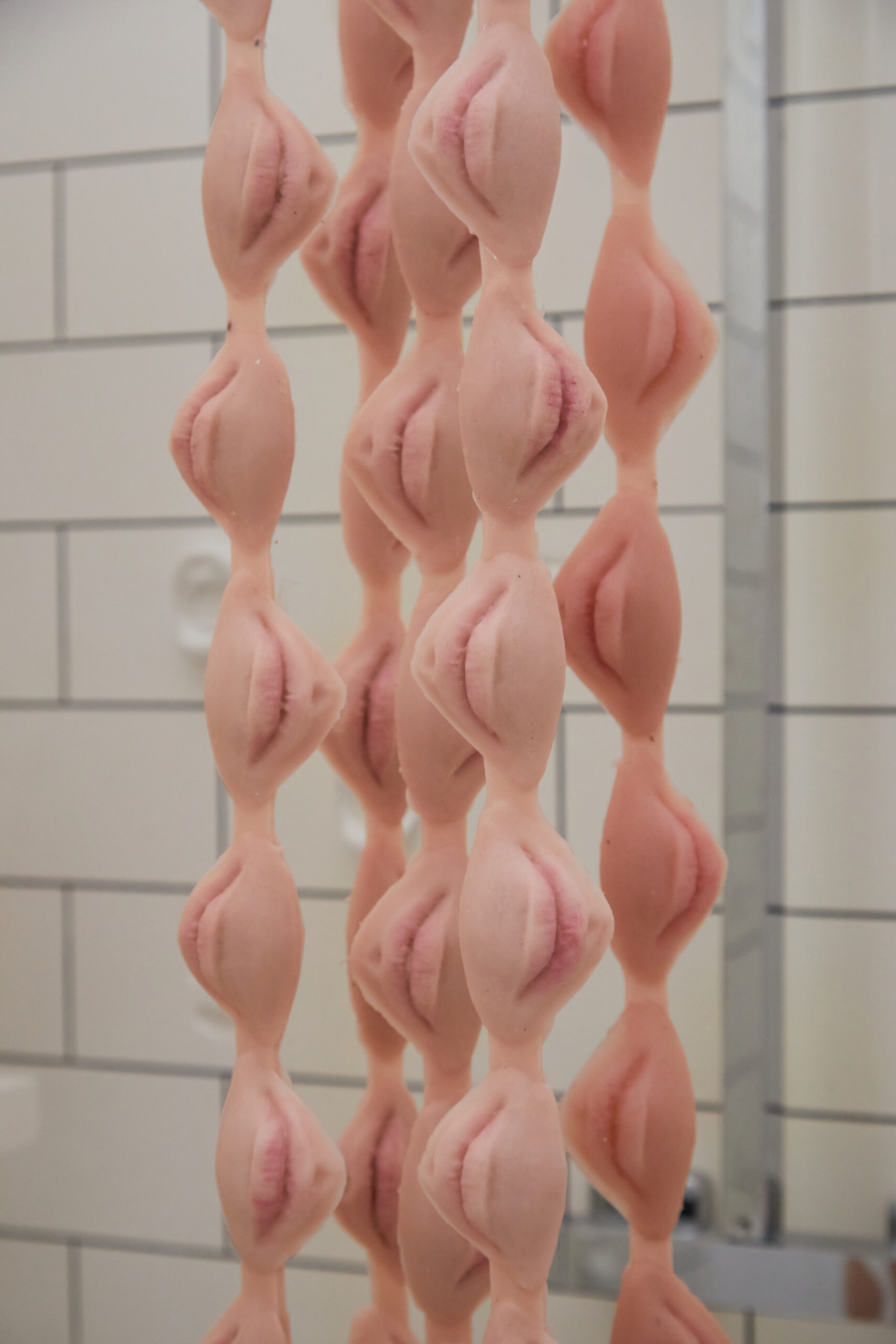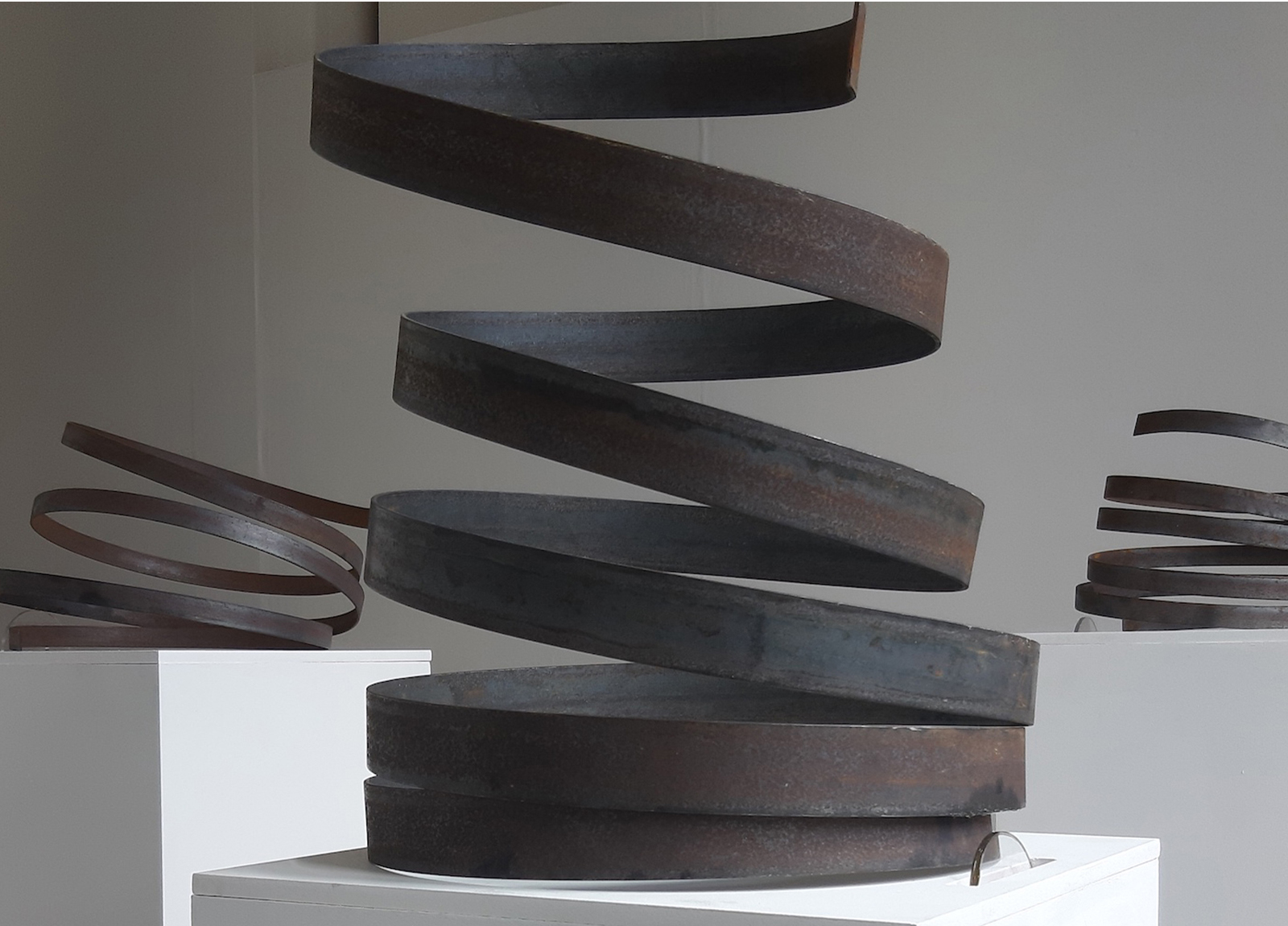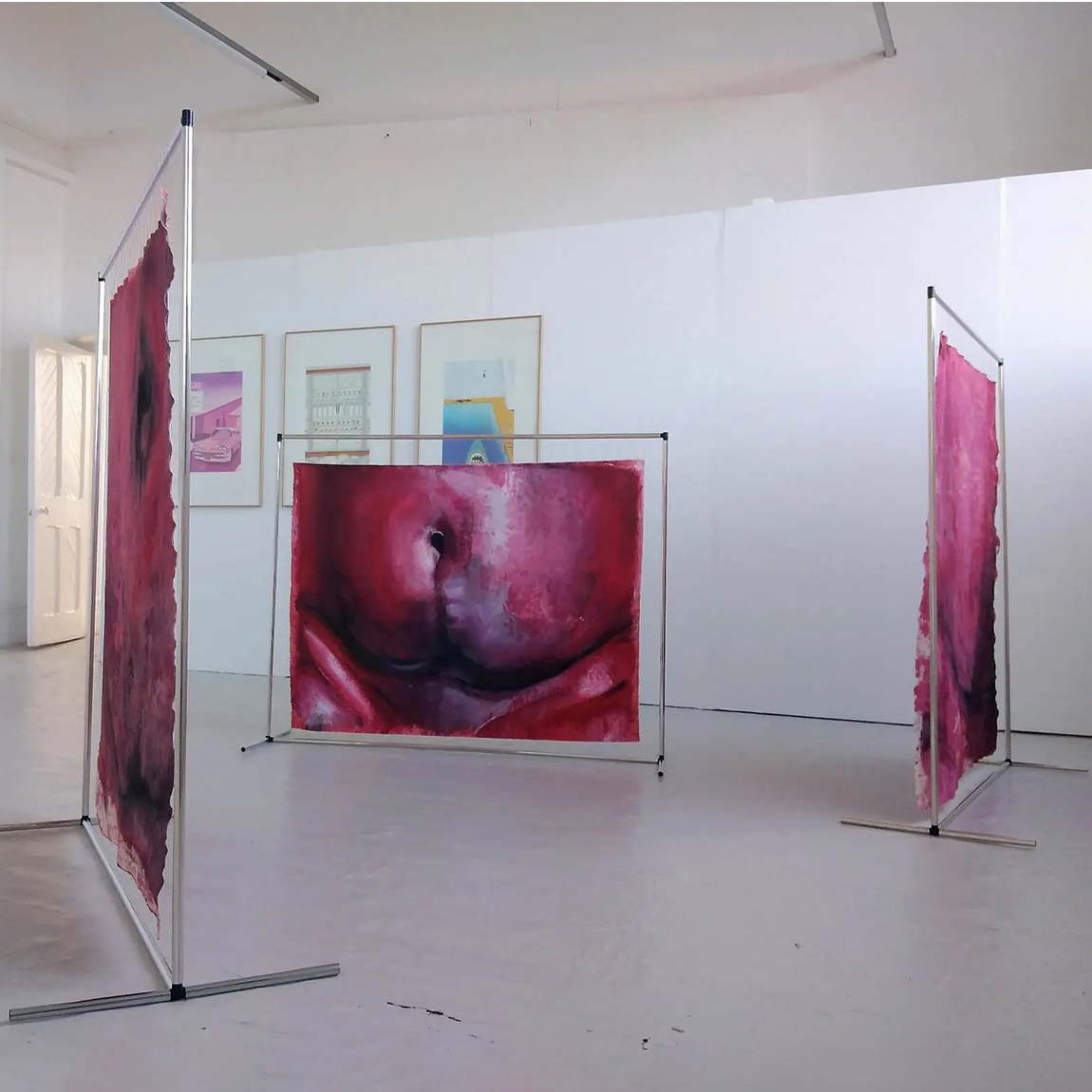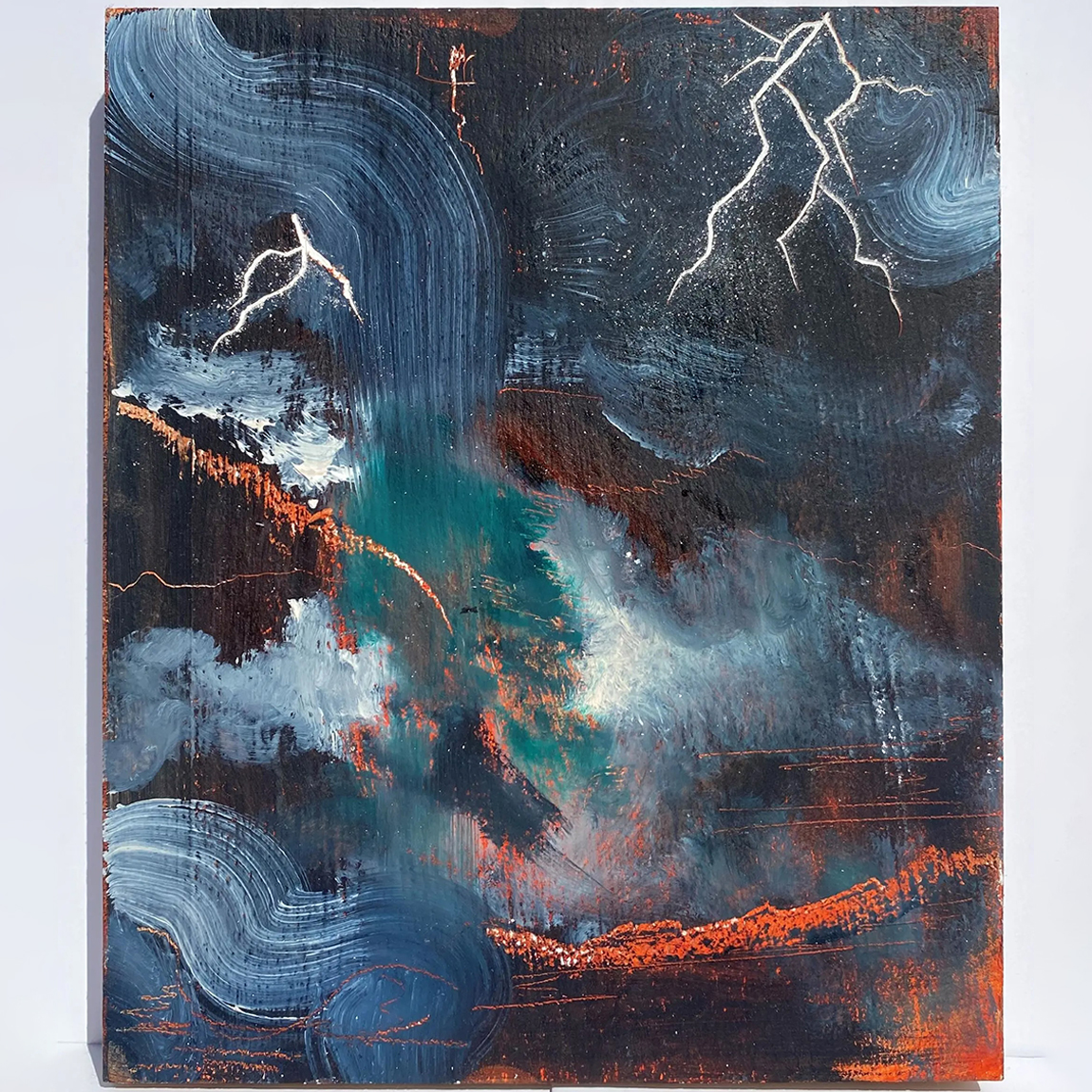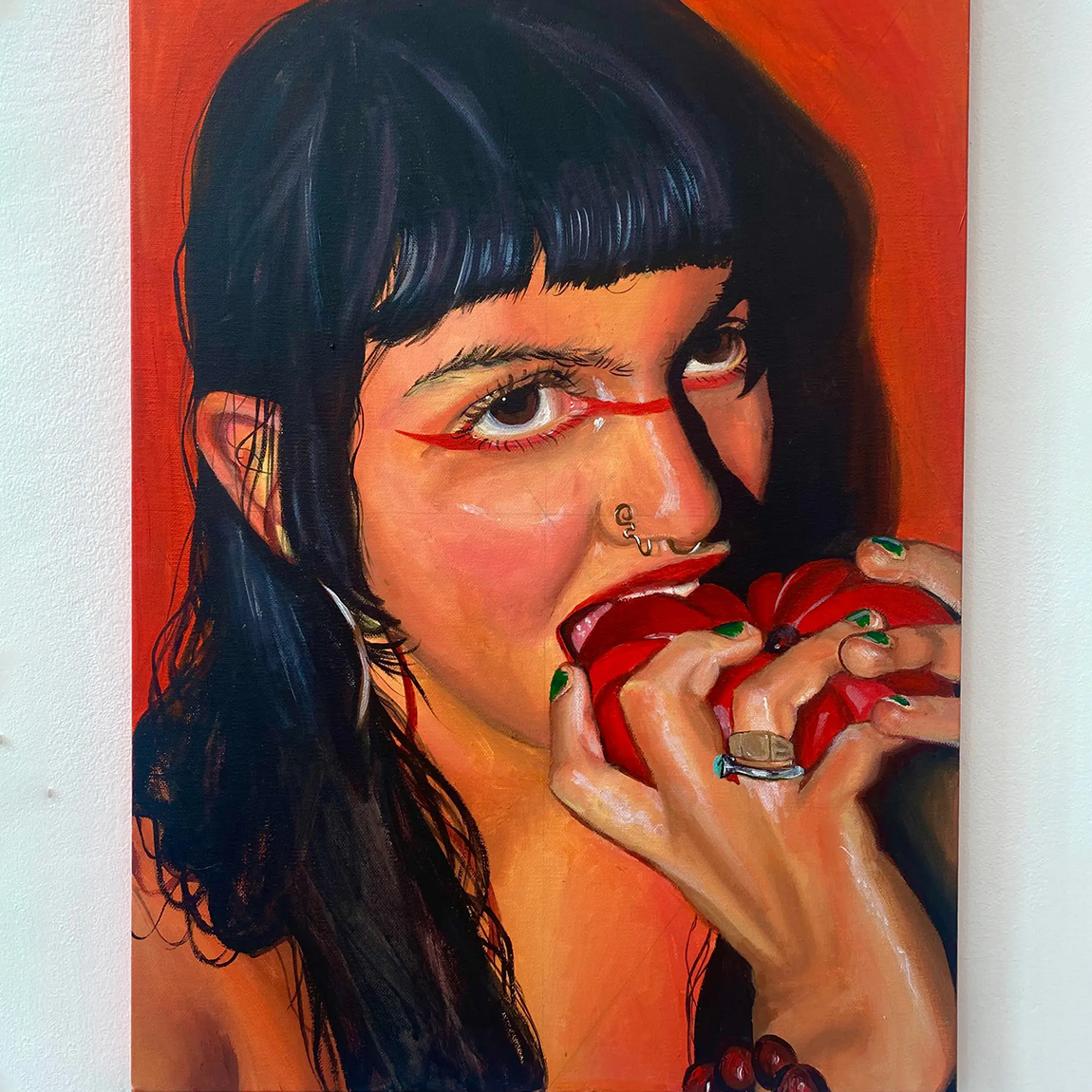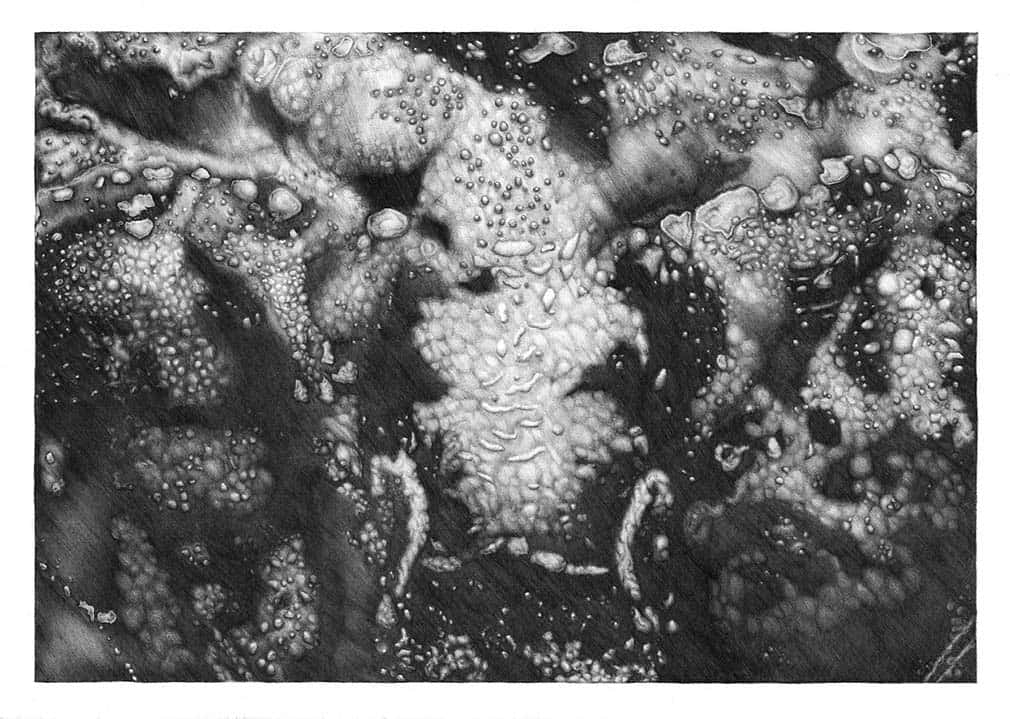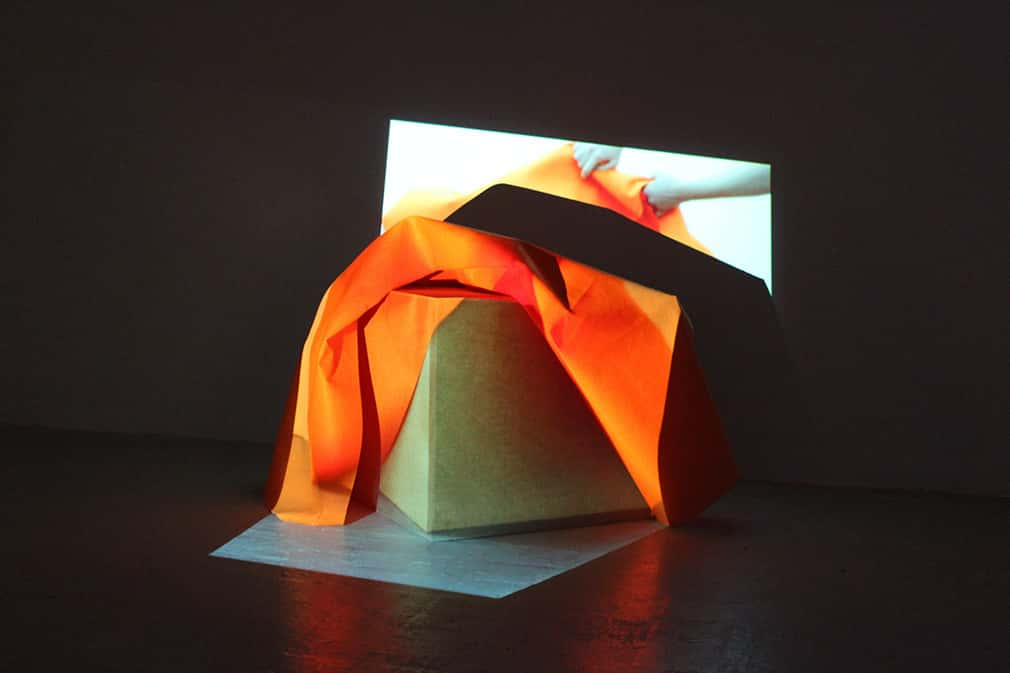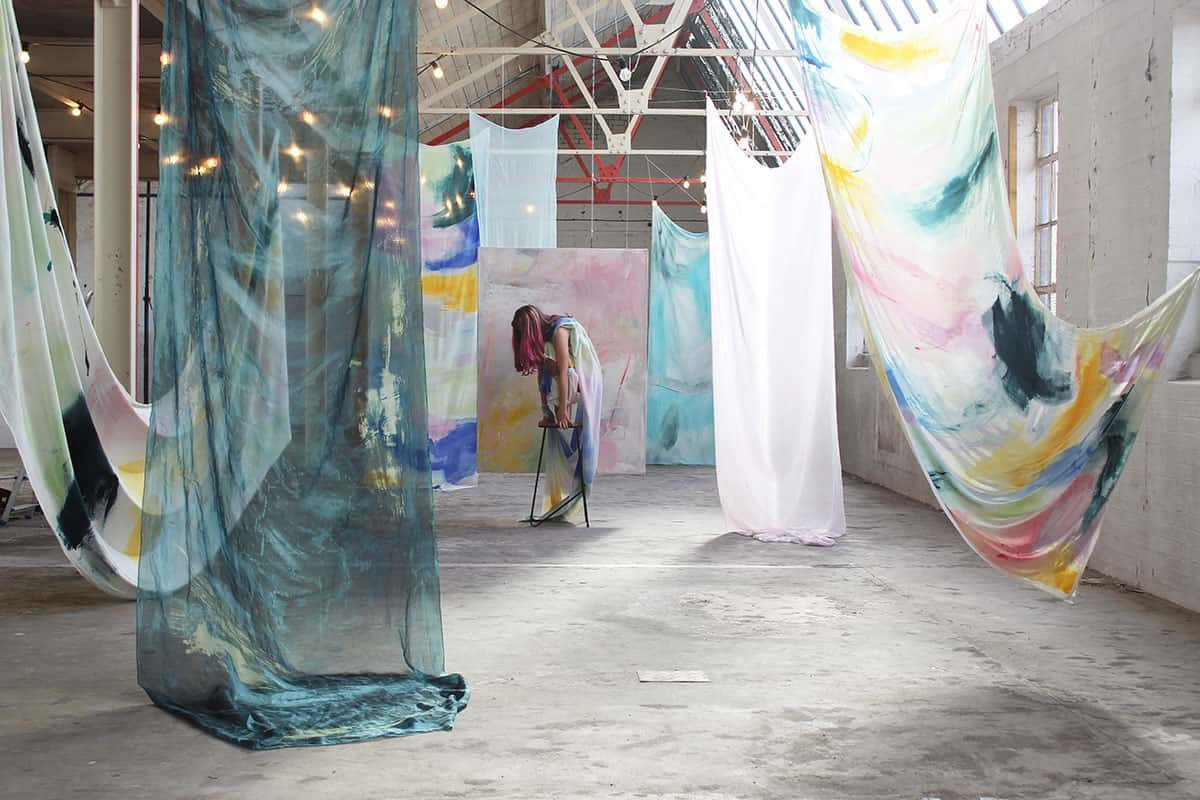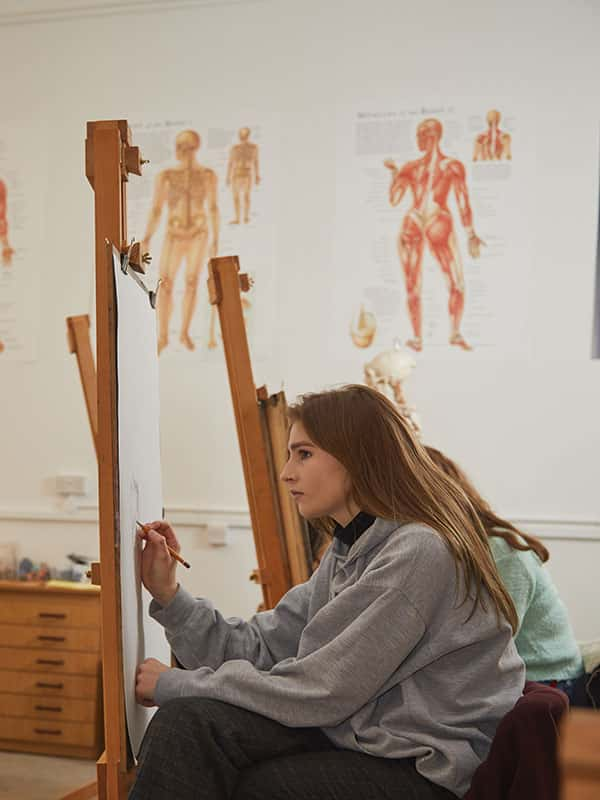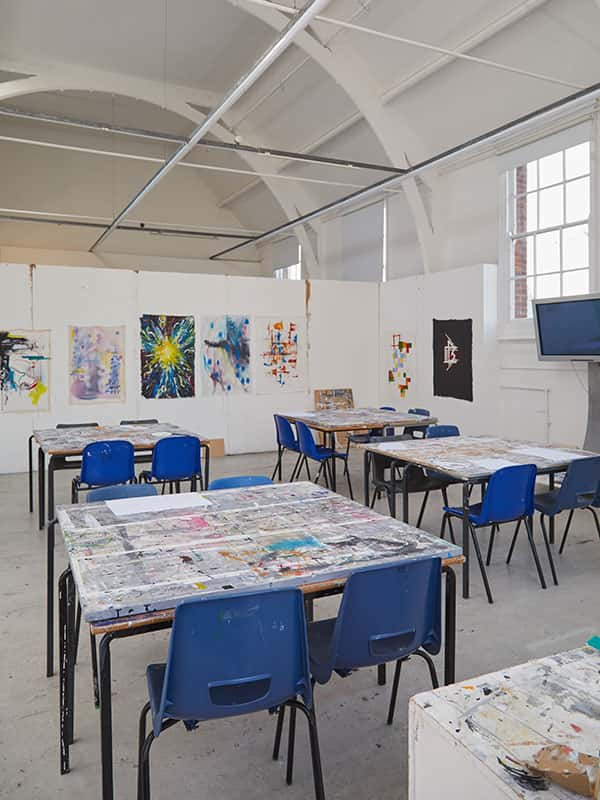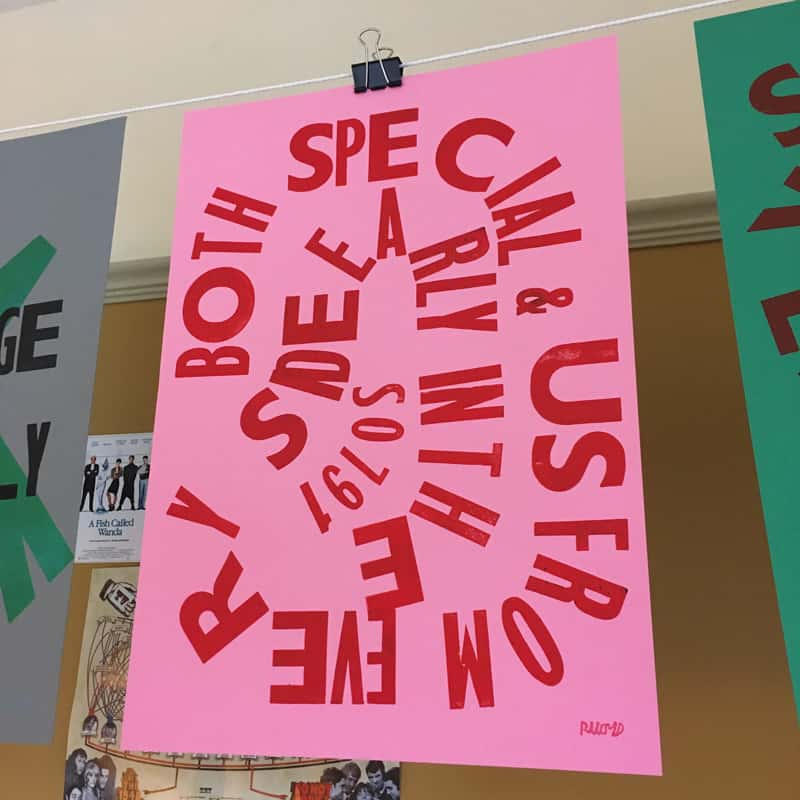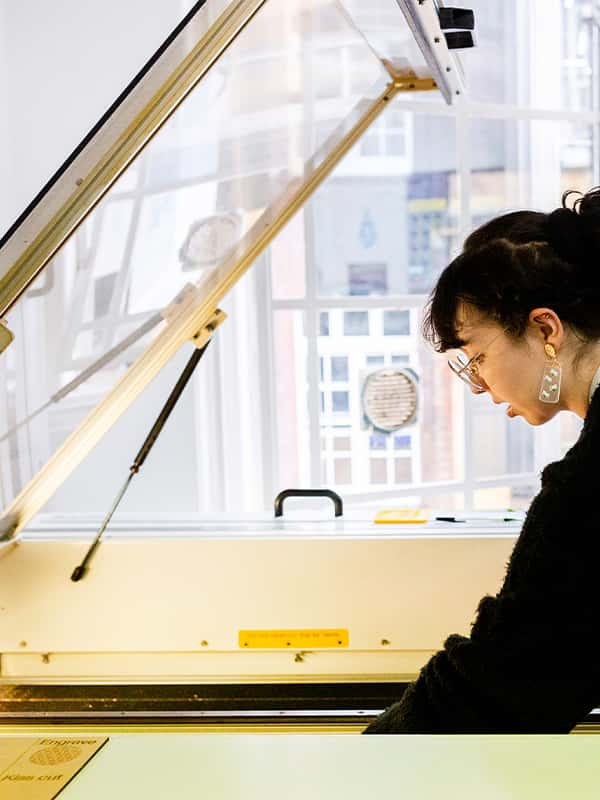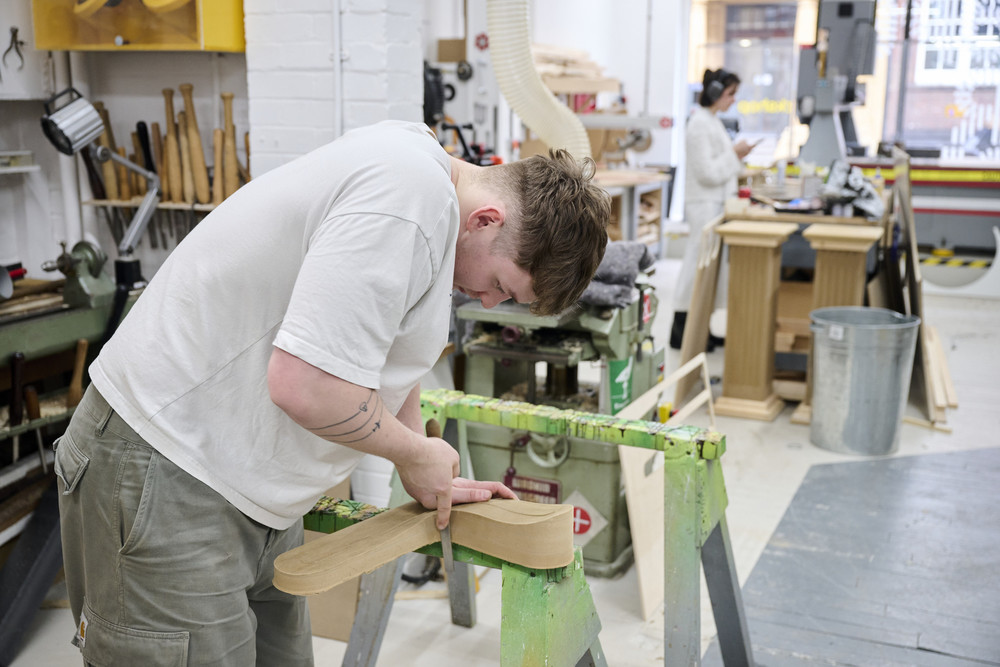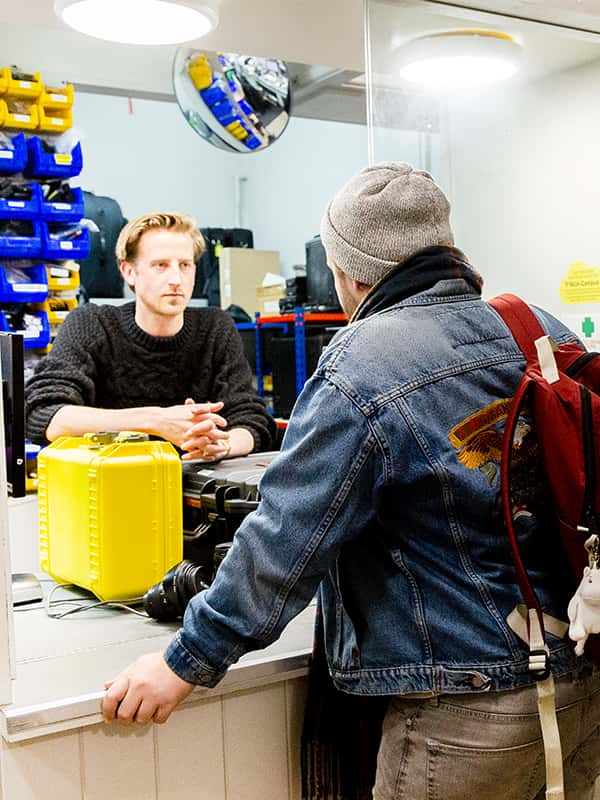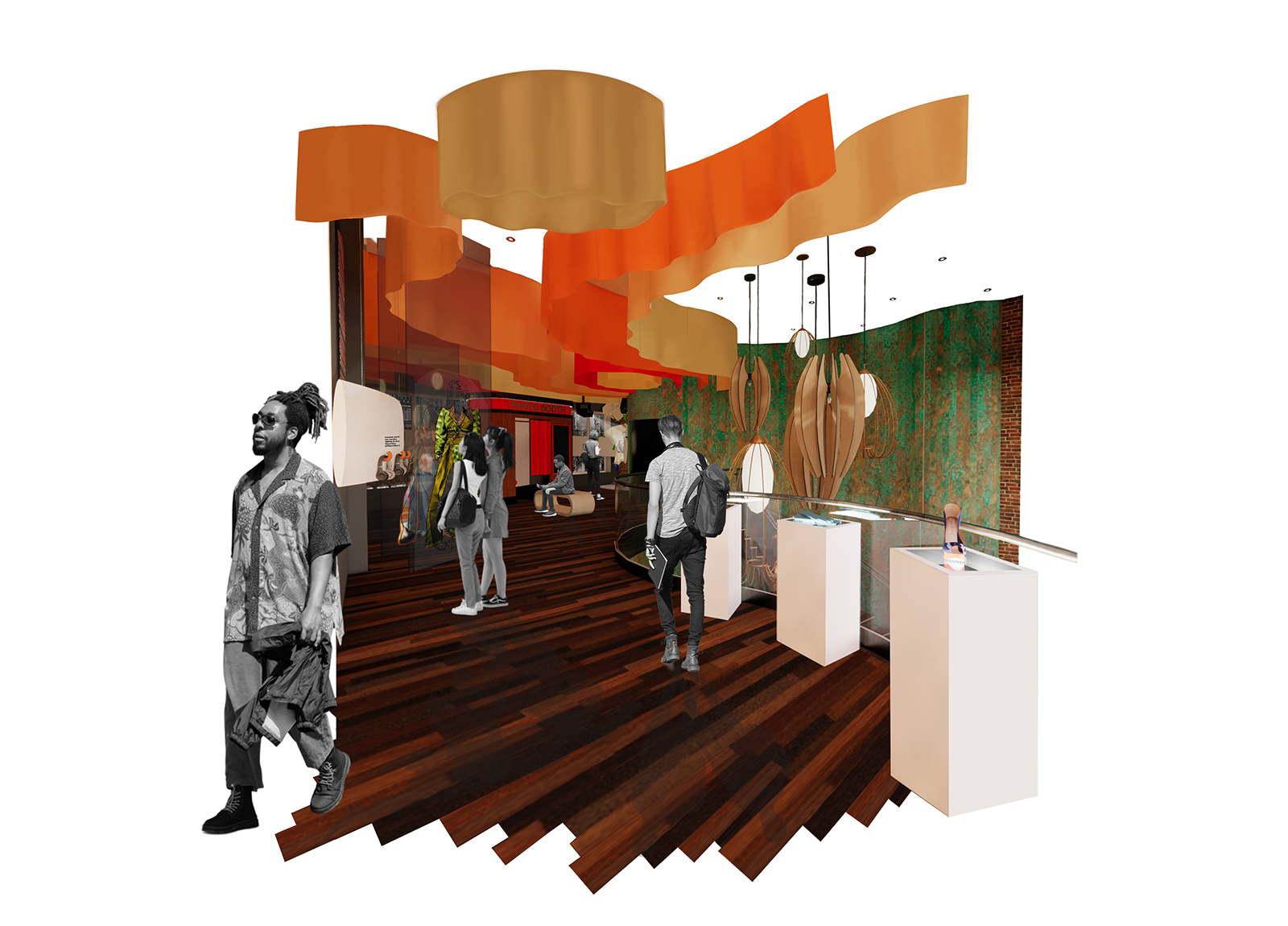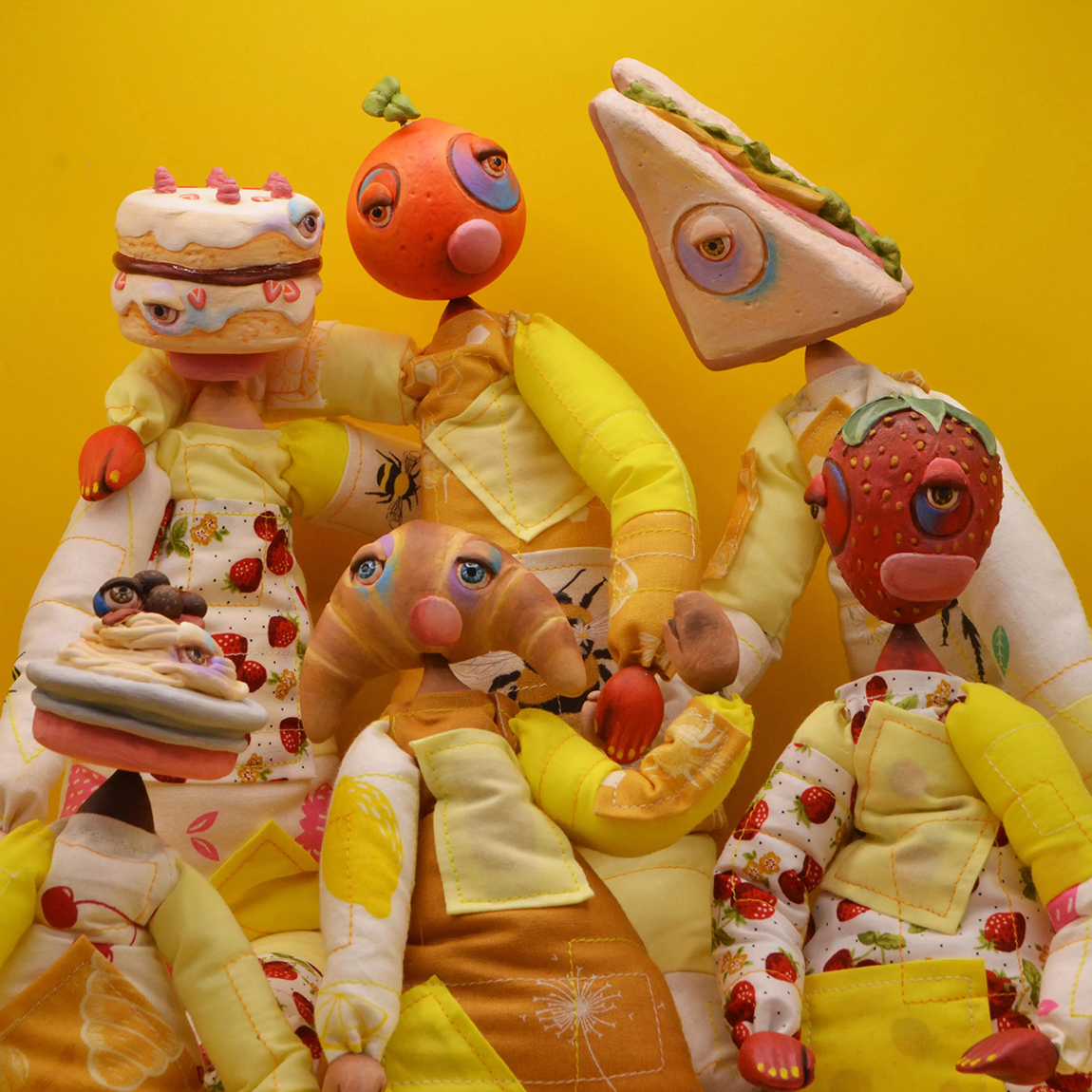
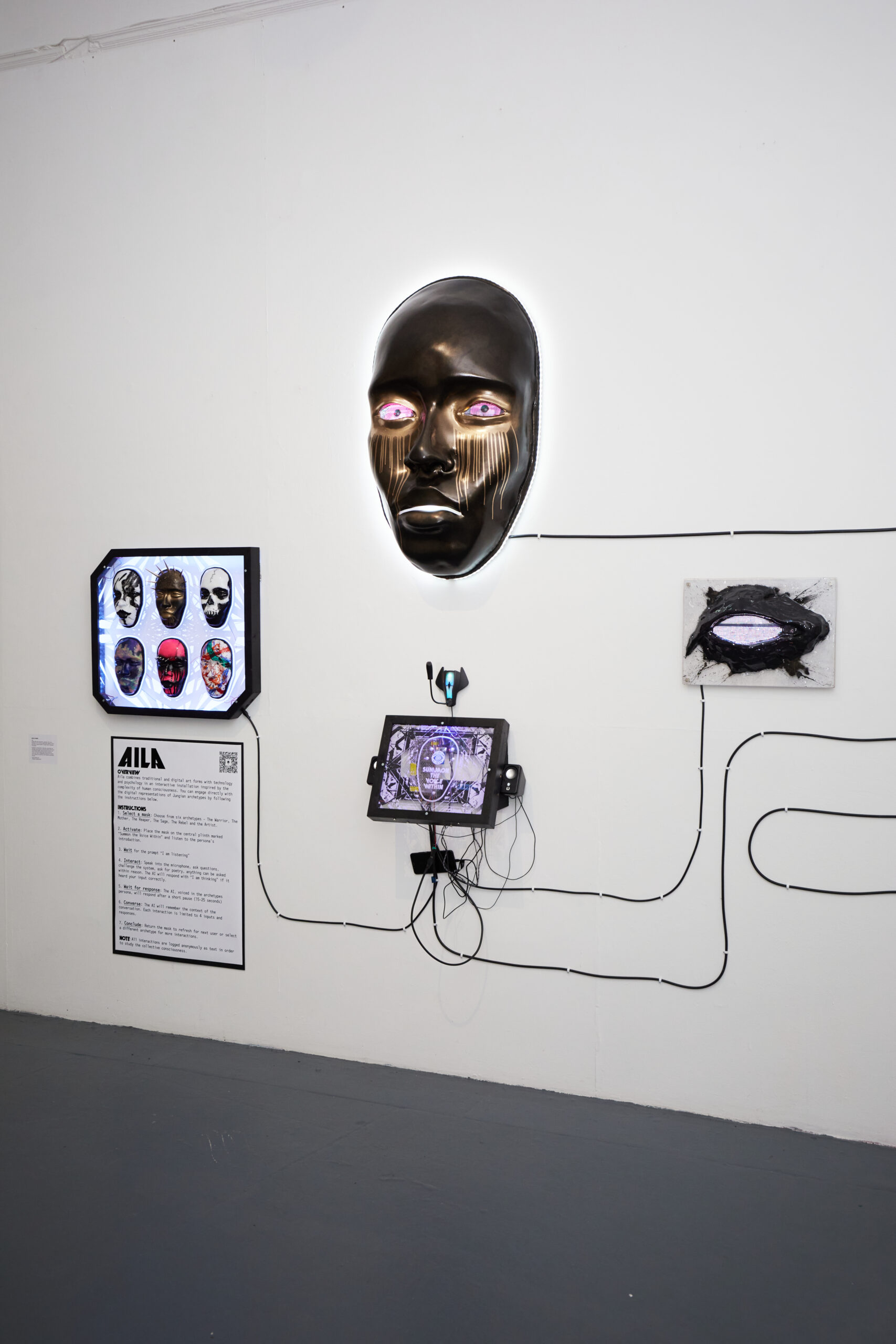
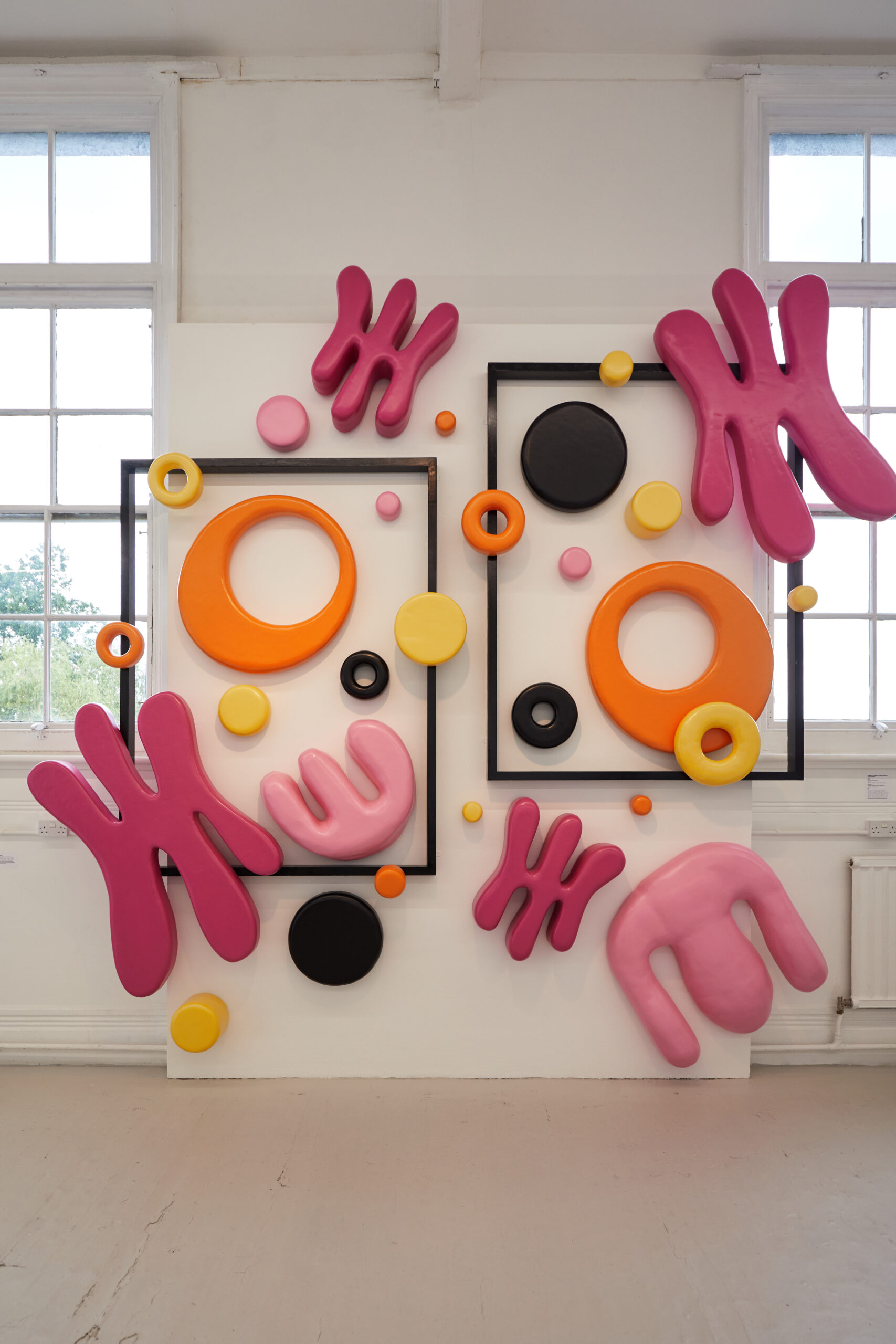
Fine Art BA (Hons)
Want to explore your creativity, ideas, and instincts in a vibrant community of artists, thinkers and makers? And shape the future of contemporary art?
-
Course Duration
3 or 4 Year options
-
Course Options
- Diploma Year
- Intergrated Foundation Year
-
Typical Offer
104-120 UCAS Tariff Points
- How to Apply Request a prospectus
-
Annual Fees
- Home (full-time) £9,790
- Overseas (full-time) £18,860
-
UCAS code
- W101 (3 Year), W102 (4 Year)
- Institution code: N39
-
Course Start
September 2026
BA (Hons) Fine Art emphasises the importance of ‘thinking through making’ to support life-long professional development. You’ll enhance your critical thinking, collaboration, independence and creativity skills in an ethical, diverse and sustainable context. Through this approach, you’ll develop skills and knowledge relevant to a broad range of contemporary applications.
You will shape your distinctive career path as an artist and join generations of graduates who have achieved national and international success. Whatever your choice of medium, we will encourage and support you in developing your practice and a substantial portfolio. You’ll have access to the tools you need to make and create, including Printmaking facilities, 3D studios and a foundry, our historic Munnings Life Drawing Studio, Painting studios and Augmented and Virtual Reality.
Your creative development will include gaining valuable professional skills related to promoting and selling your work, curation, contracts, costing and networking. Opportunities will emerge through the course team’s close links with regional and national galleries like Tate Modern, Wysing Arts Centre, Firstsite, Sainsbury Centre for Visual Arts and OUTPOST.
Why study with us
-
Learn a variety of fine art approaches paired with a historical and theoretical foundation to encourage debate and reimagine the future of fine art practice.
-
Gain key advanced techniques from drawing to digital media and technical knowledge through comprehensive workshops, developing your creative practice through experimentation, risk taking and playfulness.
-
Work in our incredible studio space and workshops and explore different media techniques and materials.
-
Learn how to contextualise your work and think practically about the audience while exploring collaborative, collective and socially engaged approaches.
-
Develop business skills such as sales and promotion, growing your audience, curation, contracts, costing jobs and presenting your outcomes.
-
Through our links with regional, national and international organisations, gain opportunities to engage in collaborative projects, including with other courses.
Course Details
Integrated Foundation Year (optional)
Our Integrated Foundation Year is designed to equip students with the necessary skills, knowledge and confidence to thrive in their chosen degree subject. The course provides a comprehensive introduction to various disciplines, blending critical thinking and creative problem-solving with practical hands-on experience. This year serves as a bridge to undergraduate studies, allowing students to explore their interests within a supportive and inspiring environment, while familiarising themselves with the campus, workshops, and tutors.
Year 1
Core Units
Creative Learning (40 credits)
In your first unit, you will focus on developing your skills across all fine art disciplines, with practical work playing an important role in informing art theory and critical and historical perspectives. The unit helps you to acclimatise to Higher Education and to the University through projects and workshops, using different resources of the University campus. You will explore inspiration and ideas, identify your practice interests, and develop new working methods. You will be encouraged to be open to new and innovative ways of working through experimentation, practice and text-based research. Group tutorials will enable you to review work in progress, discuss ideas, form strategies for moving forward with your practice, and identify interests and concerns that will underpin your practice as an artist.
40 credits
Explore and Experiment (80 credits)
In this unit, you will explore and experiment with techniques, materials, media, idea generation, and critical evaluation. You will craft a statement of intent to determine the theme(s) and direction of your practice and contextual research. From this starting point, you will work independently in the studios and project spaces to explore, test and critique your work. Skills-based workshops will also encourage experimental approaches to making. Throughout the unit, you will work on projects to challenge your perception of fine art, expand the range of your knowledge, and, in some cases, spark your imagination when you feel the creative block. Cross-university events will allow you to work in disciplines other than Fine Art alongside peers from other courses.
80 credits
Core Projects
Wayfinding Week
The first week of each academic year is called Wayfinding week. It’s an opportunity get your bearings, establish new connections and, after your first year at Norwich, re-establish old ones. Your course team will talk you through the year ahead and explain the expectations for the year. We’ll help you navigate new encounters and identify areas to focus on as you progress through your course.
Make it Manifest(o)
An important element of Wayfinding Week is taking part in our annual ‘Make it Manifest(o)’ project. Your course team will introduce the project in which we’ll ask you to consider your hopes and vision of the year ahead at Norwich and work with students in other year groups to bring your ideas to life. The project culminates in a celebratory display of work across the campus. The project will help you to develop your critical creativity through different approaches, concepts, and mediums. You’ll encounter diverse perspectives and build friendships and networks within our university community.
Interchange Week
Interchange weeks are opportunities to step away from your disciplinary studies and engage in projects, workshops, visits and talks that extend your knowledge and understanding of the world. Whether you learn a new skill or take part in a global challenge project with students from other courses, you will come away with new insights to take back to your course. Interchange is part of the schedule for all Norwich students with sessions held across and beyond the campus led by university staff, visiting lecturers and students.
Year 2
Core Units
Global Contexts (80 credits)
In this unit, you will continue to develop your own voice and find ways of working based upon themes and contexts of your choice, while developing knowledge of the way that your work fits into different global contexts. You will also choose from a variety of specialist workshops to enhance your skills and identify the key themes you wish to explore throughout the unit. As the year progresses, you’ll delve deeper into your ideas, analysing the strengths and weaknesses of your work through tutorials, lectures, seminars, and workshops. You’ll also explore different exhibition formats through the development of an interim exhibition. Through a series of lectures, you will be introduced to theories, concepts and global contexts, which you will discuss with peers and staff during seminars. You’ll further your understanding of research by exploring the relationships between sources, methodologies, themes, and ideas in support of your evolving practice.
80 credits
Collaboration (40 credits)
This unit focuses on helping you understand your practice in a broader context through collaboration and interdisciplinary working, including working with students and staff from other courses. You can choose to be a part of an externally-facing project or define your own project with external partners. Project briefs will encourage you to be a part of project management teams to learn more about the dynamics of team working. This collaborative learning experience will expose you to a range of new processes and approaches that will develop your creative thinking. Through our programme of lectures, discussions, cross-university events and gallery visits, you will continue to engage with current ideas, practices, and debates surrounding contemporary art that will help you see beyond your specialism.
40 credits
Core Projects
Wayfinding Week
The first week of each academic year is called Wayfinding week. It’s an opportunity get your bearings, establish new connections and, after your first year at Norwich, re-establish old ones. Your course team will talk you through the year ahead and explain the expectations for the year. We’ll help you navigate new encounters and identify areas to focus on as you progress through your course.
Make it Manifest(o)
An important element of Wayfinding Week is taking part in our annual ‘Make it Manifest(o)’ project. Your course team will introduce the project in which we’ll ask you to consider your hopes and vision of the year ahead at Norwich and work with students in other year groups to bring your ideas to life. The project culminates in a celebratory display of work across the campus. The project will help you to develop your critical creativity through different approaches, concepts, and mediums. You’ll encounter diverse perspectives and build friendships and networks within our university community.
Interchange Week
Interchange weeks are opportunities to step away from your disciplinary studies and engage in projects, workshops, visits and talks that extend your knowledge and understanding of the world. Whether you learn a new skill or take part in a global challenge project with students from other courses, you will come away with new insights to take back to your course. Interchange is part of the schedule for all Norwich students with sessions held across and beyond the campus led by university staff, visiting lecturers and students.
Diploma Year (optional)
Level 5 Diploma (120 credits)
Students have the opportunity to spend a year after the second of their degree (or the third year if studying for a degree with an Integrated Foundation Year) enhancing their employability options through a Level 5 Diploma. They can choose from courses designed to provide:
- opportunities to gain industry insight, developing employability skills through a series of supported experiences, expanding professional networks and building confidence in the workplace, or
- an introduction to creative computing, building an understanding of how coding skills can be used to advance and complement creative practice.
Final Year
Core Units
Research and Preparation (40 credits)
This is the first and shorter of the two units that make up your final year of undergraduate study. Your advancement in creative practice involving technology, materials, and processes will be developed through discussions with staff and peers in studio sessions and ‘Creative Uncertainty’ groups, where you will work on projects alongside staff. You will have opportunities to use project spaces and external venues for experimentation, collaboration, display, critique, curation, performance and discussion. Future and emerging practices in your discipline will be explored through visiting lectures, reinforced by tutorials and peer feedback. You will produce a research report that expands on the research ideas you developed in your second year. You’ll apply various research methods and methodological approaches, informed by your approach to your creative practice and future career aspirations.
40 credits
Resolution and Career Development (80 credits)
Your final unit allows you to research, conceptualise and create a self-determined final-year project(s), building on the skills, knowledge and understanding you have gathered throughout the programme. Group discussions and tutorials will provide ongoing support for your studio practice, as you solve challenges to produce ambitious outcomes. Guidance on professionally presenting your work will be offered from its development to final dissemination. Throughout the unit, you will enhance your creative approaches by engaging in workshops fostering a critical mindset and proficiency with materials, technologies, and processes. Your final unit centres around a curated degree show and other shows or publications you may produce from which you will build a portfolio, allowing your work to be viewed by curators, collectors, buyers and gallery owners.
80 credits
Core Projects
Wayfinding Week
The first week of each academic year is called Wayfinding week. It’s an opportunity get your bearings, establish new connections and, after your first year at Norwich, re-establish old ones. Your course team will talk you through the year ahead and explain the expectations for the year. We’ll help you navigate new encounters and identify areas to focus on as you progress through your course.
Make it Manifest(o)
An important element of Wayfinding Week is taking part in our annual ‘Make it Manifest(o)’ project. Your course team will introduce the project in which we’ll ask you to consider your hopes and vision of the year ahead at Norwich and work with students in other year groups to bring your ideas to life. The project culminates in a celebratory display of work across the campus. The project will help you to develop your critical creativity through different approaches, concepts, and mediums. You’ll encounter diverse perspectives and build friendships and networks within our university community.
Interchange Week
Interchange weeks are opportunities to step away from your disciplinary studies and engage in projects, workshops, visits and talks that extend your knowledge and understanding of the world. Whether you learn a new skill or take part in a global challenge project with students from other courses, you will come away with new insights to take back to your course. Interchange is part of the schedule for all Norwich students with sessions held across and beyond the campus led by university staff, visiting lecturers and students.
Download course specifications
Learning and teaching
This course is taught through a mixture of learning and teaching methods including:
-
Group briefings
-
Academic tutorials
-
Group tutorials
-
Workshops
-
Critiques (crits)
-
Seminars
-
Lectures
Assessment
Assessment for this course is entirely coursework-based, meaning there are no exams. Your progress will be evaluated through the projects and assignments you complete for each unit. Throughout the year, you’ll receive ongoing feedback to help you refine your work and develop your skills. To support your learning and ensure you achieve the course outcomes, we use a variety of assessment methods, including:
- Finished pieces of work
- Presentations
- Written work
- Your research
- A reflective journal
Some of the people you’ll be working with
- Showing 1-8 of 11 results
-
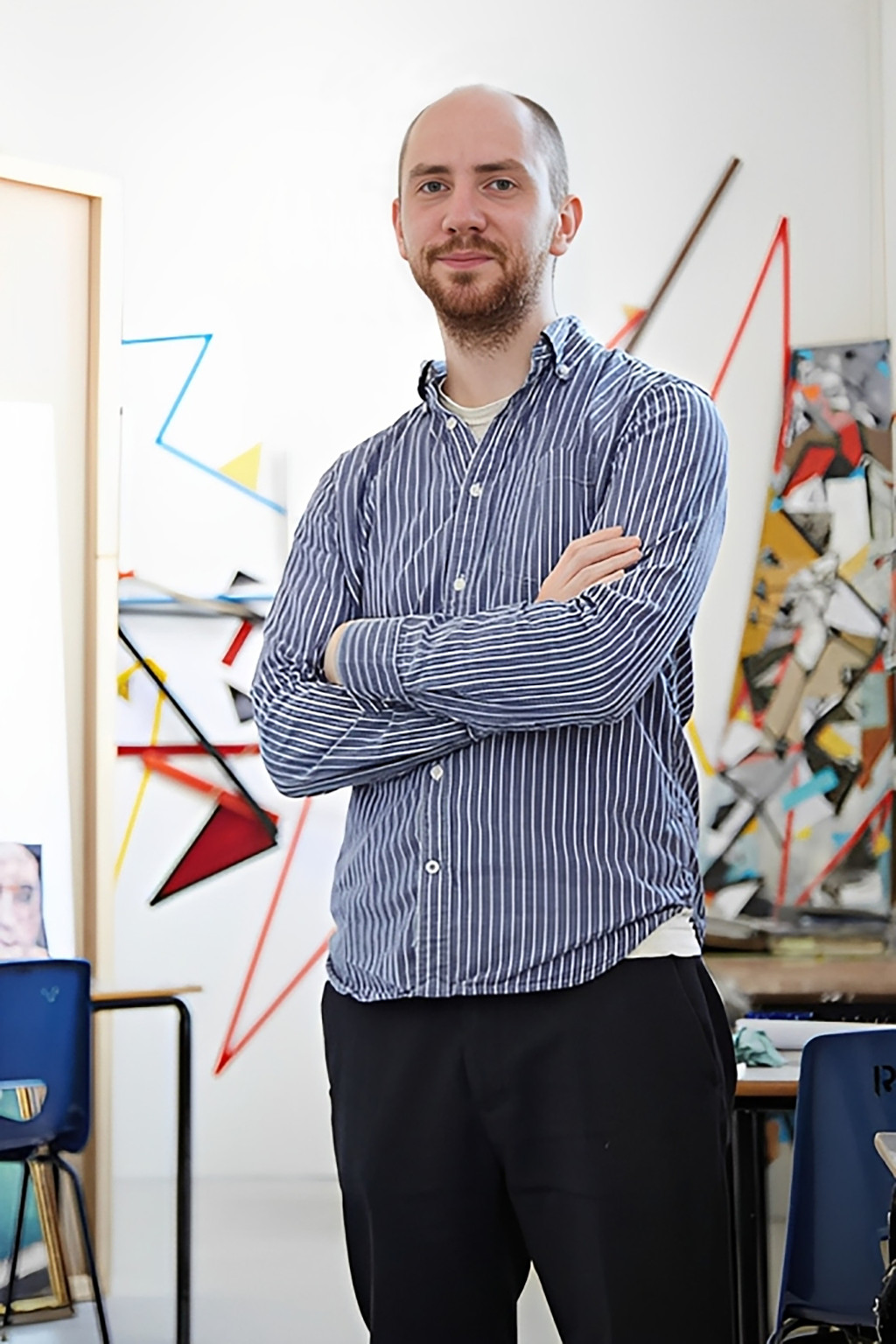
Craig Barber
Course Leader, Fine Art
-
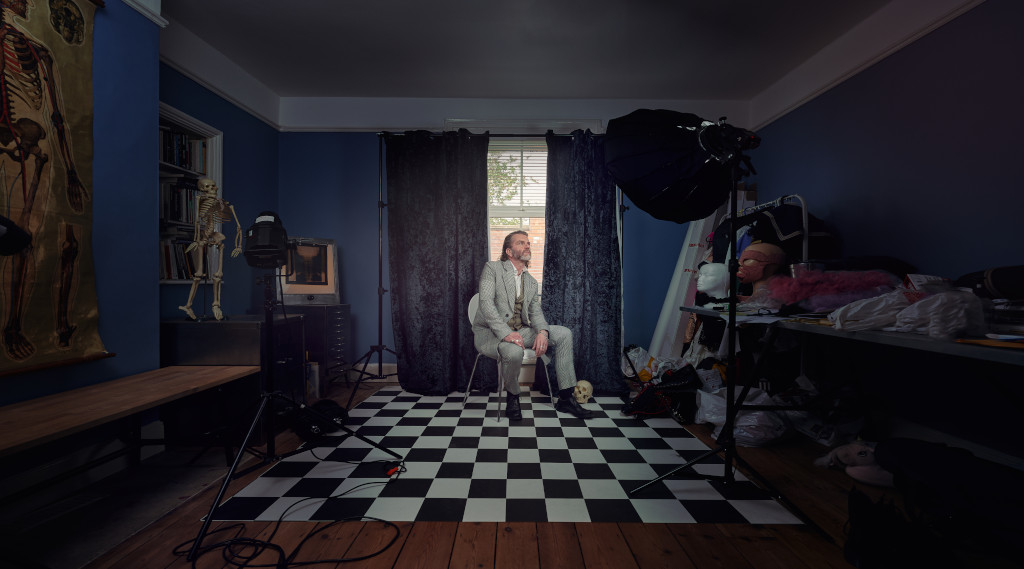
Professor Richard Sawdon Smith
Director of Fine Art and Photography
-
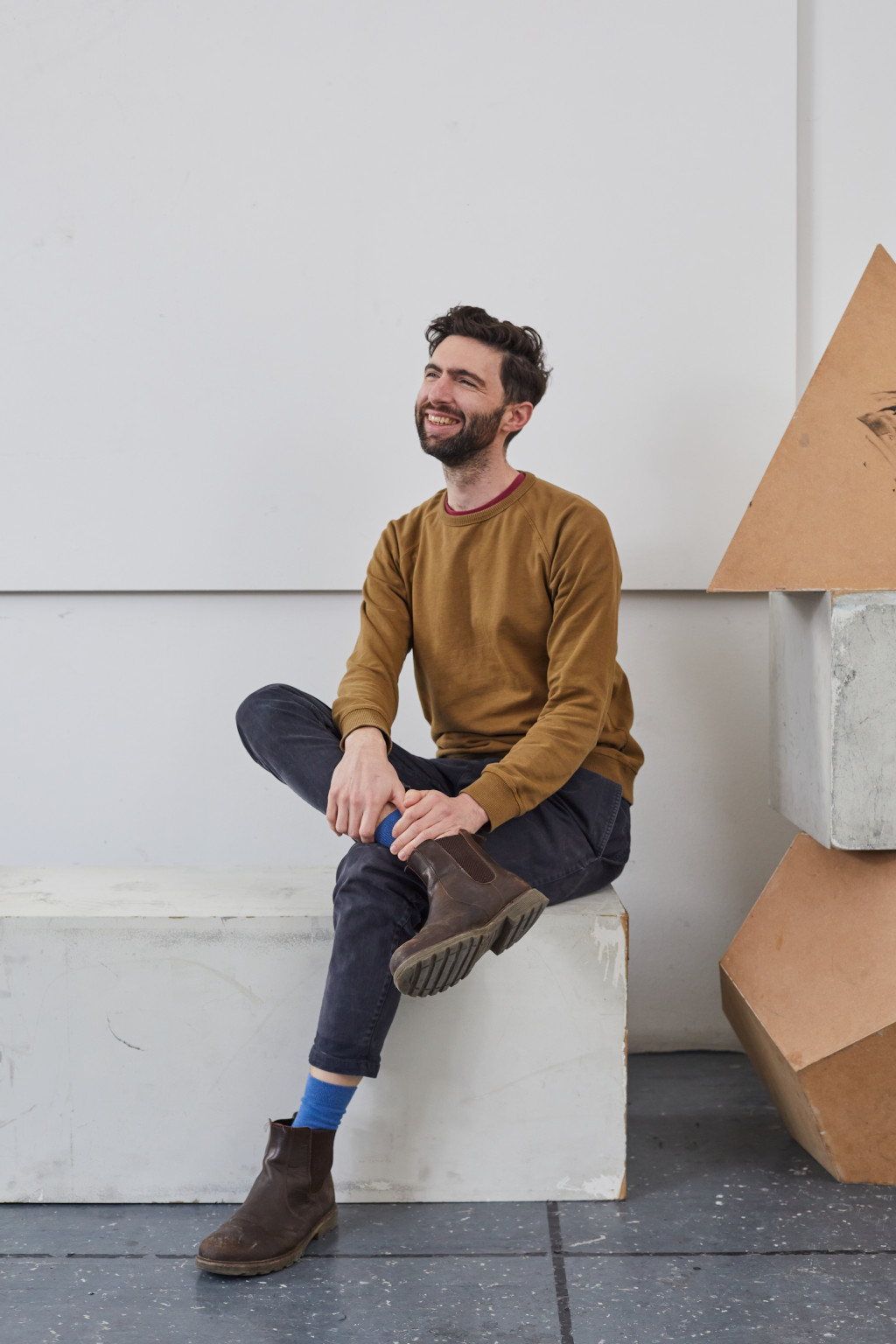
Ben McDonnell
Senior Lecturer
-
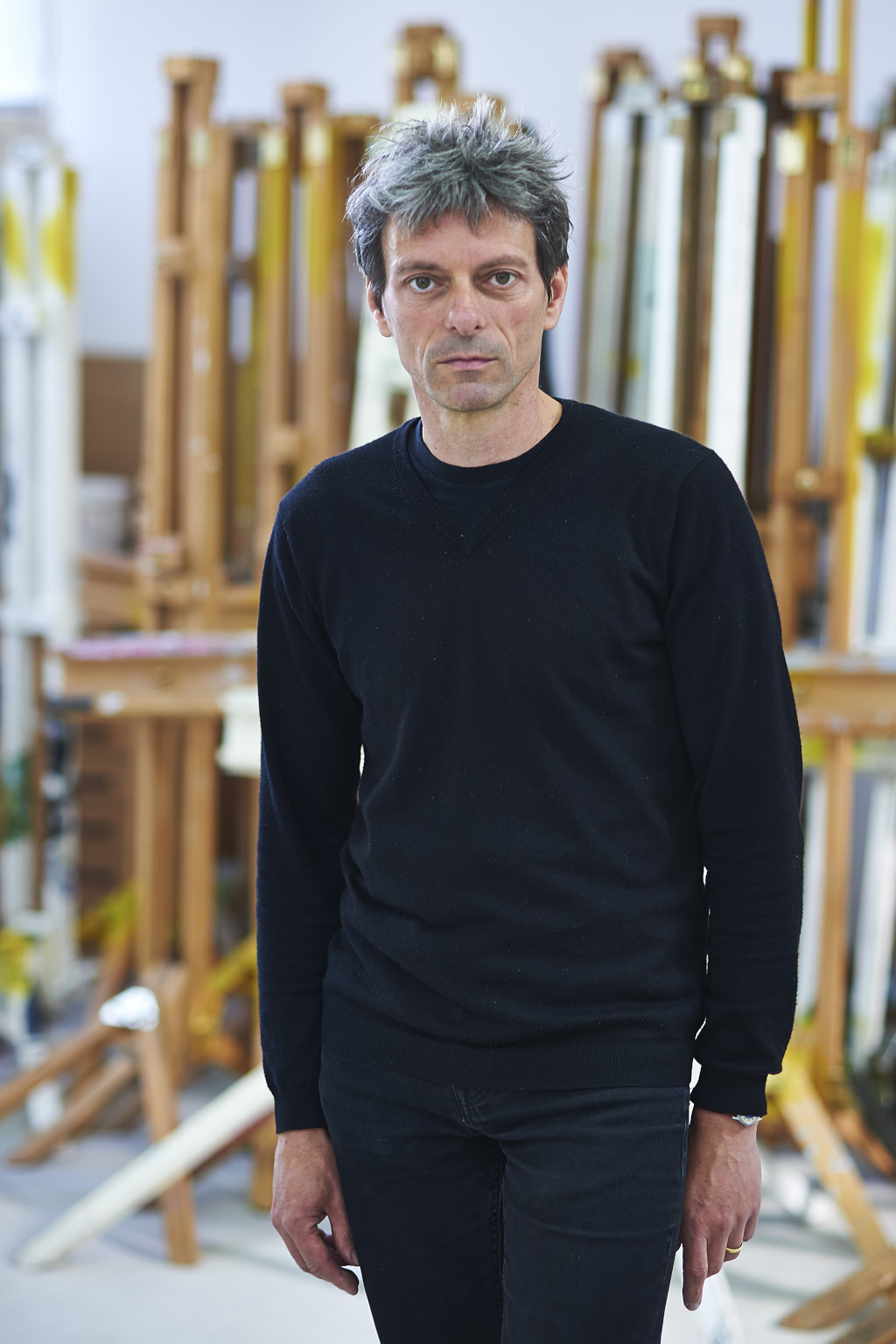
Professor Krzysztof Fijalkowski
Senior Lecturer
-
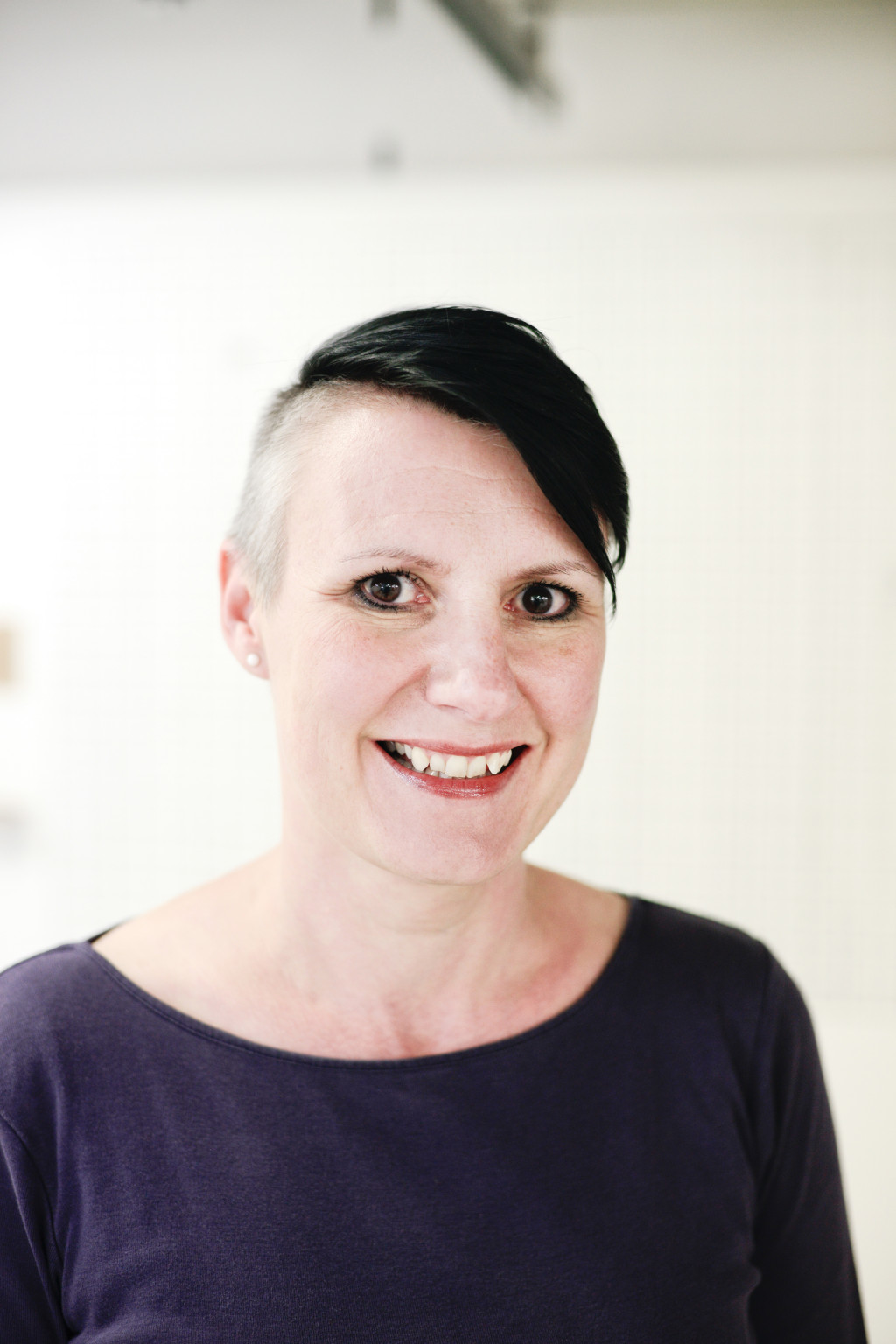
Dr Sarah Horton
Senior Lecturer
-
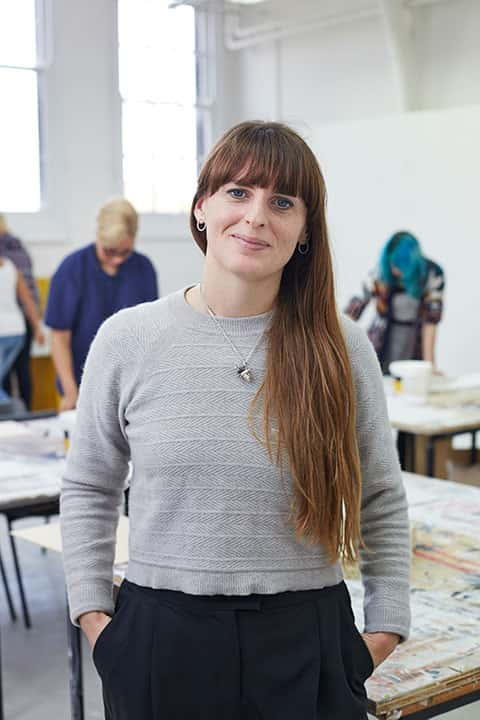
Sarah Longworth-West
Senior Lecturer
-

Desmond Brett
Subject Leader and Senior Lecturer
-
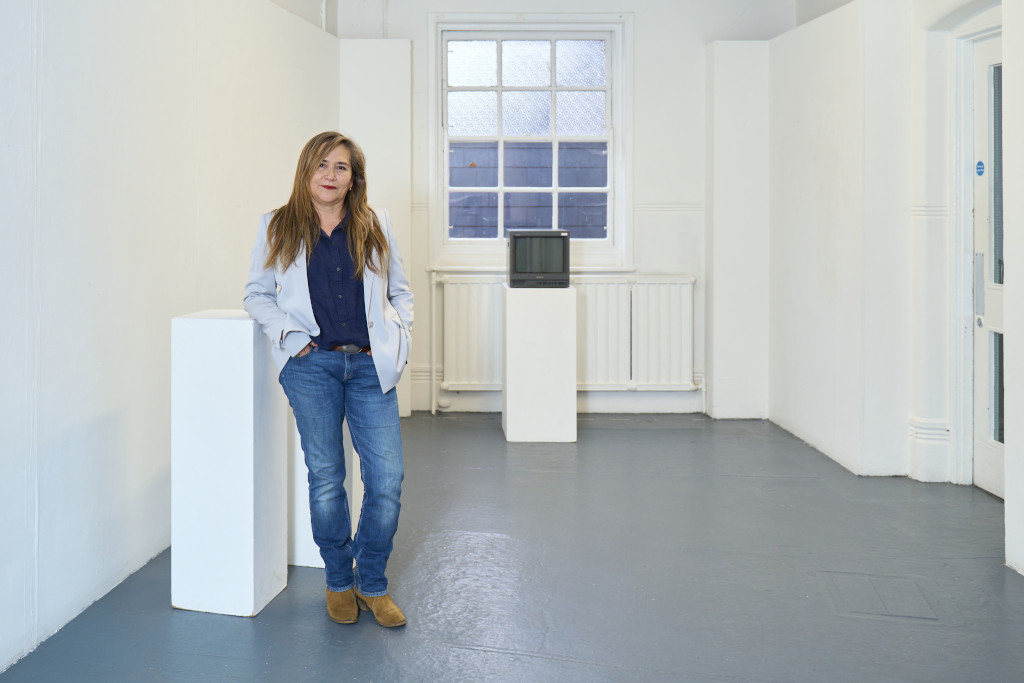
Dr Marina Velez Vago
Lecturer and Research Supervisor
Our Facilities
Look around our city-centre campus, and you will find studios, media labs, and creative spaces in 13 buildings that sit among the cafés, bars, independent galleries and shops of Norwich’s cultural quarter.
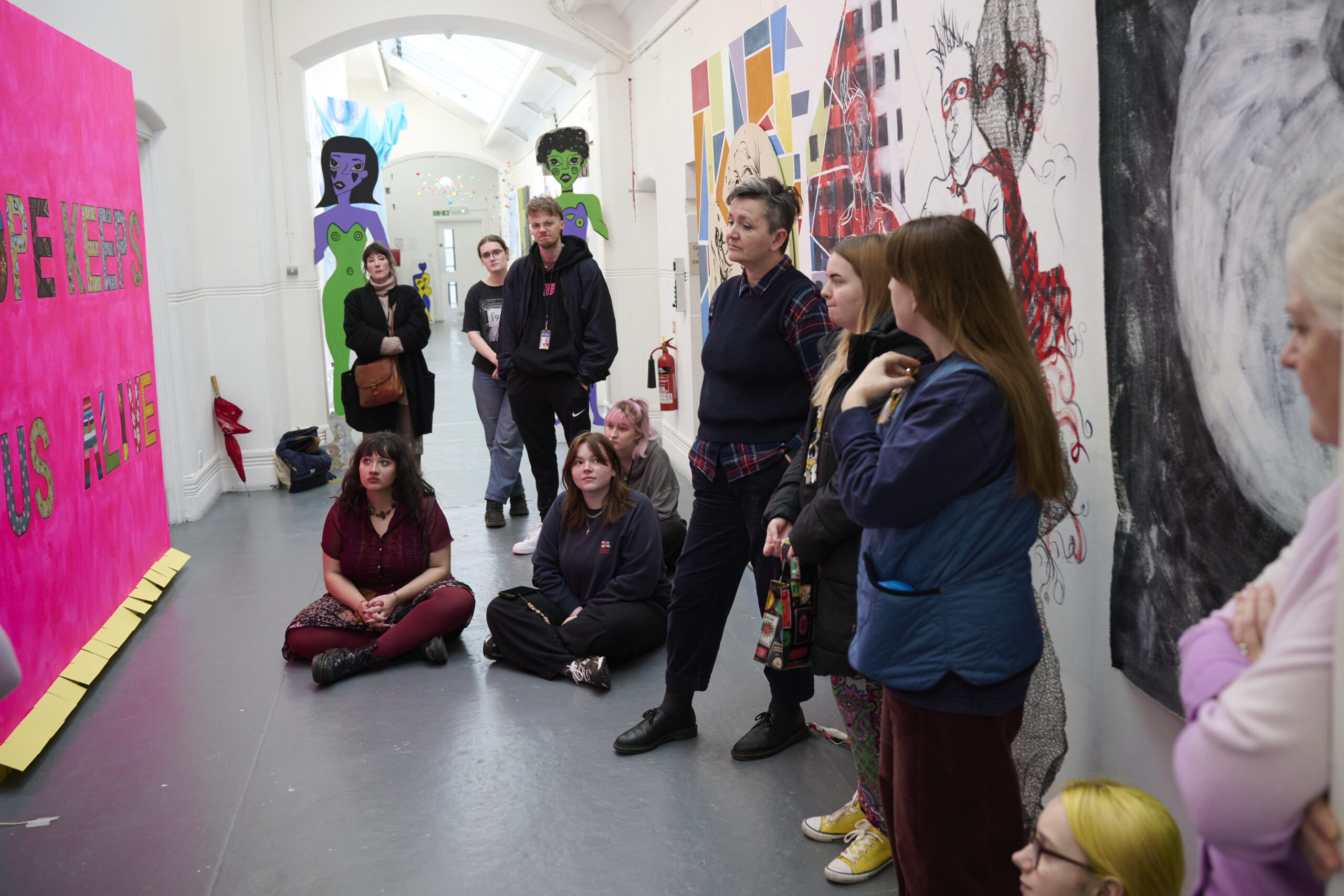
Typical career paths
Throughout your Fine Art degree, you’ll have the chance to develop links with regional and national organisations and through the visiting lecture series you’ll get to network with contemporary artists, curators, academics and writers.
Our graduates are renowned for their unique voice and vision, leading them to Turner Prize nomination and inclusion in the UK’s annual New Contemporaries exhibition and Saatchi Art’s Rising Stars.
- Practising Artist
- Community Artist
- Exhibition Organiser
- Arts Administrator
- Art Consultant
- Gallery Manager
- Researcher
- Curator
- Teacher/lecturer
- Digital media artist
- Art Handler
“92% of our graduates are in employment or further education within six months of graduating”
Graduate Outcomes 2021
Entry requirements
Home
Norwich University of the Arts welcomes applicants of all ages from all backgrounds.
If the qualification that you are studying is not shown, do not worry as we are able to accept other pre-entry qualifications as well as combinations of different qualifications.
Please do contact our Student Recruitment Team if you have any queries.
A/AS Levels (GCE)
GCE A/AS Levels 3 A-level qualifications at grades BCC (104 UCAS Tariff points) or above. Where candidates are not taking 3 A-levels, Norwich University of the Arts will consider combinations of A-level/AS-level and other Level 3 qualifications.
BTEC Extended Diploma (QCF or RQF)
Distinction, Merit, Merit in an art, design or media related subject
BTEC Diploma (QCF or RQF)
Distinction*, Distinction* in an art, design or media related subject
T Levels
A T Level in any subject with overall grade A* to C (Pass)
UAL Extended Diploma
Merit
UAL Level 3 Foundation Diploma in Art and Design
Pass
UAL Level 4 Foundation Diploma in Art and Design
Pass
Foundation Diploma in Art and Design
Pass
Access to Higher Education Diploma (Art and Design)
Pass
International Baccalaureate Diploma
A minimum of 26 points
Integrated foundation year (optional)
Norwich University of the Arts welcomes applicants of all ages from all backgrounds.
If the qualification that you are studying is not shown, do not worry as we are able to accept other pre-entry qualifications as well as combinations of different qualifications.
Please do contact our Student Recruitment Team if you have any queries.
A/AS Levels (GCE)
GCE A/AS Levels 2 A-level qualifications at grades CC (64 UCAS Tariff points) or above.
BTEC Extended Diploma (QCF or RQF)
Merit, Merit, Pass in an art, design or media related subject
BTEC Diploma (QCF or RQF)
Distinction*, Merit in an art, design or media related subject
T Levels
Pass (D or E on the core)
UAL Extended Diploma
Pass
UAL Level 3 Foundation Diploma in Art and Design
Pass
UAL Level 4 Foundation Diploma in Art and Design
Pass
Foundation Diploma in Art and Design
Pass
International Baccalaureate Diploma
A minimum of 26 points
Overseas
We accept qualifications from all over the world.
To find our entry requirements from a specific country, please check our dedicated international pages.
English language qualifications
Most international students are required to hold an English language qualification. Applicants are required to have a minimum UKVI approved IELTS exam score of 6.0 overall, with a minimum of 5.5 in each section. Equivalent English language qualifications are acceptable such as, IB English language syllabus A or B/English Literature (Grade 4).
We also accept some alternative English qualifications. Learn more about our English entry requirements.
You can email us on international@norwichuni.ac.uk if you’d like to discuss your application individually.
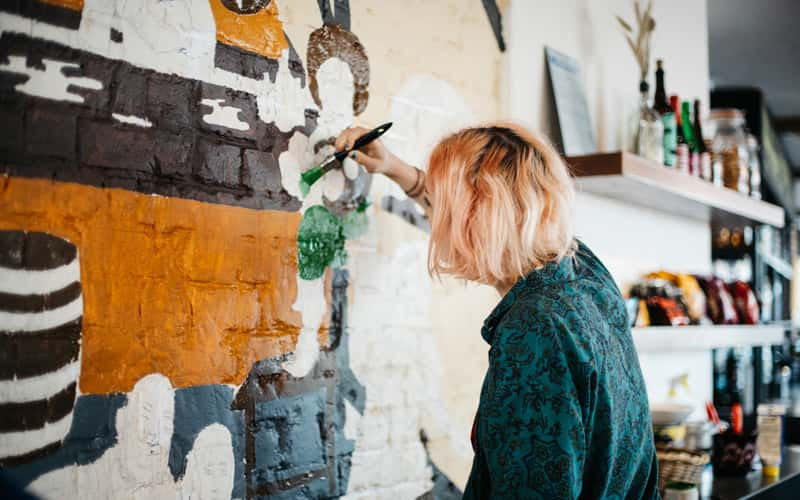
Fees and funding
Home
Tuition fees for the 2026/27 academic year
- BA course (three year): £9,790 per year
- Integrated Foundation Year (optional): £9,790 per year
- Level 5 Diploma Year (optional): £9,790 year
The level of fee that you will be asked to pay depends on whether you’re classed as a UK (home) or international student. Check your fee status.
Fees for subsequent years
Tuition fees may increase in subsequent years in line with inflation, subject to government regulations. The inflation rate used is expected to be the Retail Price Index excluding mortgage payments (RPIX). We would confirm this in advance to you of each academic year.
Find our more about fees and funding
Funding your study
Depending on your circumstances, you may qualify for a bursary, scholarship or loan to help fund your study and enhance your learning experience.
International
Tuition fees for the 2026/27 academic year
- BA course (three year): £18,860
- Integrated Foundation Year (optional): £18,860
- level 5 Diploma year (optional): £18,860
The level of fee that you will be asked to pay depends on whether you’re classed as a UK (home) or international student. Check your fee status.
Fees for subsequent years
For Overseas students starting in 2026 inflation will be applied to your fees in later years. We will confirm this in advance to you of each academic year, and we will limit the increase to no more than the Office for Students’ recommended inflationary measure.
Find our more about fees and funding
Funding your study
Please take a look at our International students page for information about fees, scholarships for international students, visas and much more.
Additional costs
Your course fees cover the cost of studies, and include loads of benefits, such as the use of our library, support from our expert employability team, access to workshops and free use of the IT equipment across our campuses. There are also other costs which you may need to consider.
How to apply
Home
All applications for undergraduate courses will need to be made via the Universities and Colleges Admissions Service (UCAS).
You’ll need our university UCAS code (N39) as well as your course code which you’ll find on your course page.
When you register with UCAS you will need include your previous and current qualifications information, personal statement, and reference.
Once we receive your application form through UCAS, we will email confirmation that we have received it and will give you access and instructions for logging into the applicant portal. Our decision will be communicated via UCAS.
Applying for an undergraduate degreeInternational
Full-time Undergraduate International applicants can either apply via UCAS or directly by completing the online application form below or emailing the downloadable form to ioadmissions@norwichuni.ac.uk
Online Application Form (opens in a new window)For further support for international applicants applying for an undergraduate degree view our international pages.
-
Clare Gregory
Fine Art BA (Hons)
George Bosworth
Fine Art BA (Hons)
Kimberley Gaskin
Fine Art BA (Hons)
Yasmin Shah
Fine Art BA (Hons)
Ellie Davison-Archer
Fine Art BA (Hons)
Madeleine Wheeler
Fine Art BA (Hons)
Brooke Savino
Fine Art BA (Hons)
Brad Rumble
Fine Art BA (Hons)
Cara Lees
Fine Art BA (Hons)

Latest news
-
 East Gallery •
East Gallery •Announcing the East Gallery Fellows 2025-2026
Norwich University of the Arts is pleased to announce the selected awardees of this year's East Gallery Fellowship. -
 BA Business Management •
BA Business Management •Dean of Creative Education Awarded Prestigious Principal Fellowship from Advance HE
The University is delighted to announce that Hilary Carlisle, Dean of Creative Education and Professor of Design, has been awarded Principal Fellowship of the Higher Education Academy (PFHEA) by Advance HE -
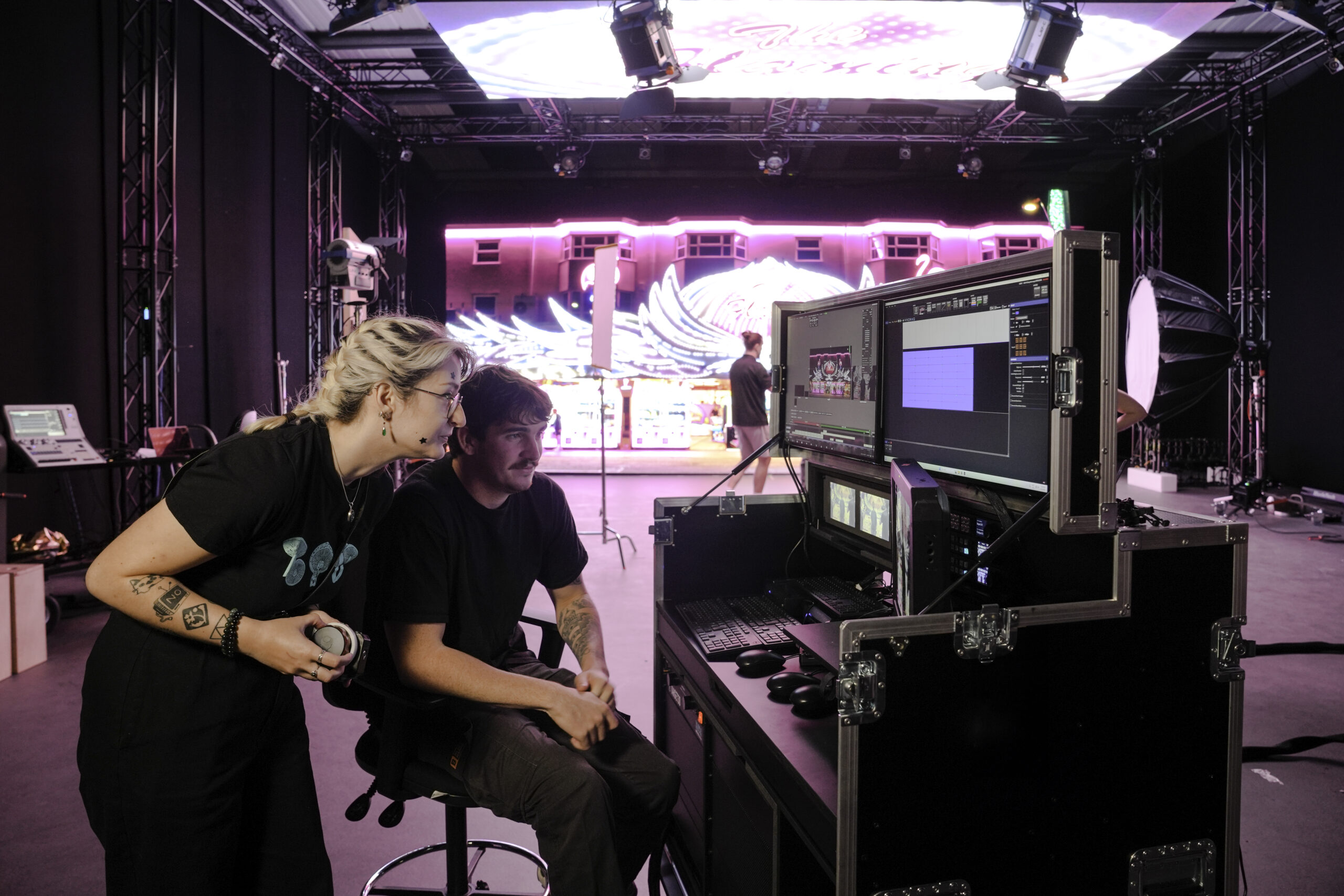 BA Degree •
BA Degree •Norwich University of the Arts to Host ELIA Academy 2027
Norwich University of the Arts is delighted to announce that it has been selected as the host institution for the ELIA Academy 2027. -
 BA Business Management •
BA Business Management •In conversation with Norwich’s newest lecturers in Marketing and Business Management
We joined Norwich's newest lecturers, Stephen Balmer-Walters and Laurie McAllister, to find out more about the University's Marketing and Business Management courses. -
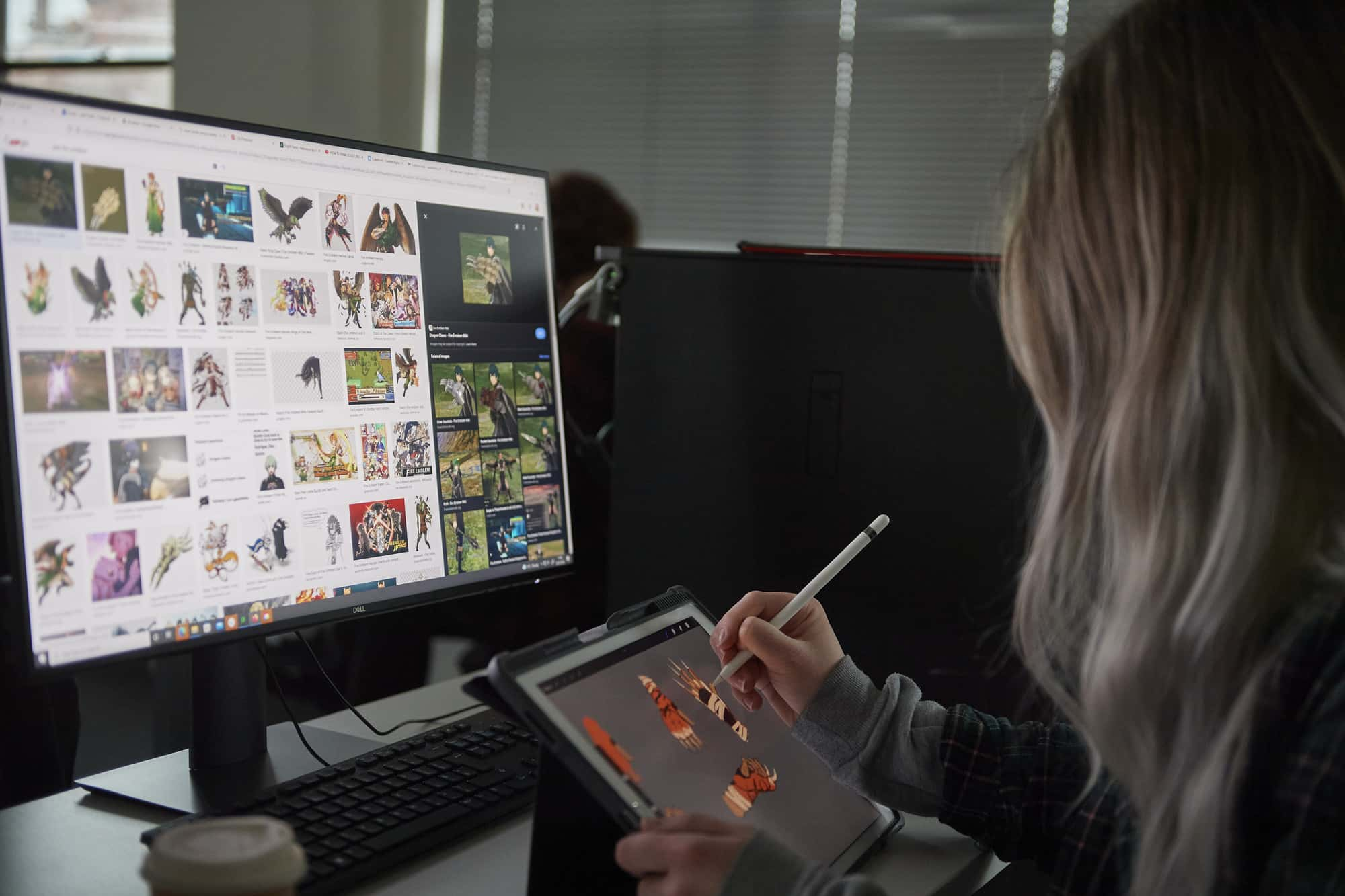 BA Games Art and Design •
BA Games Art and Design •East of England set to become UK’s next Games Cluster, says landmark report
A major new report is calling for the creation of a Games Cluster for the East of England — positioning the region as a national leader in creative technology and immersive media. -
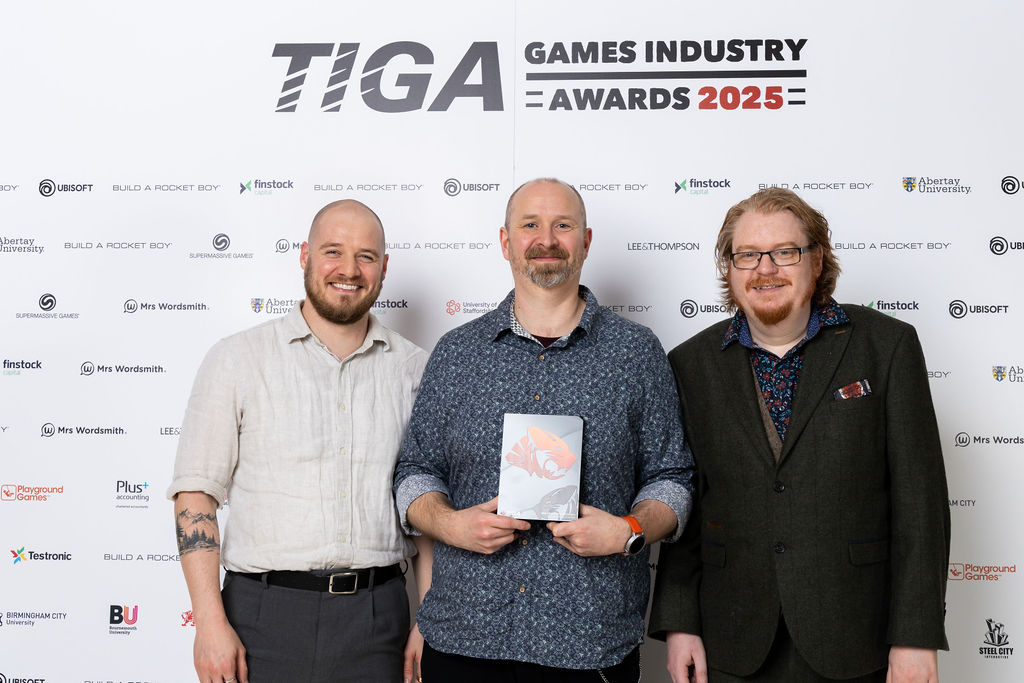 BA Games Art and Design •
BA Games Art and Design •Norwich awarded Best Education Initiative at the TIGA UK Games Industry Awards
TIGA, who represent the UK video games industry, have recognised the University’s commitment to graduate success and industry-focused learning in their 2025 awards. -
 BA Animation •
BA Animation •Cutting edge Sony Virtual Production Studio puts Norwich on the map for the future of film and gaming
Norwich University of the Arts and Sony open new landmark facility for students, creators and the community. -
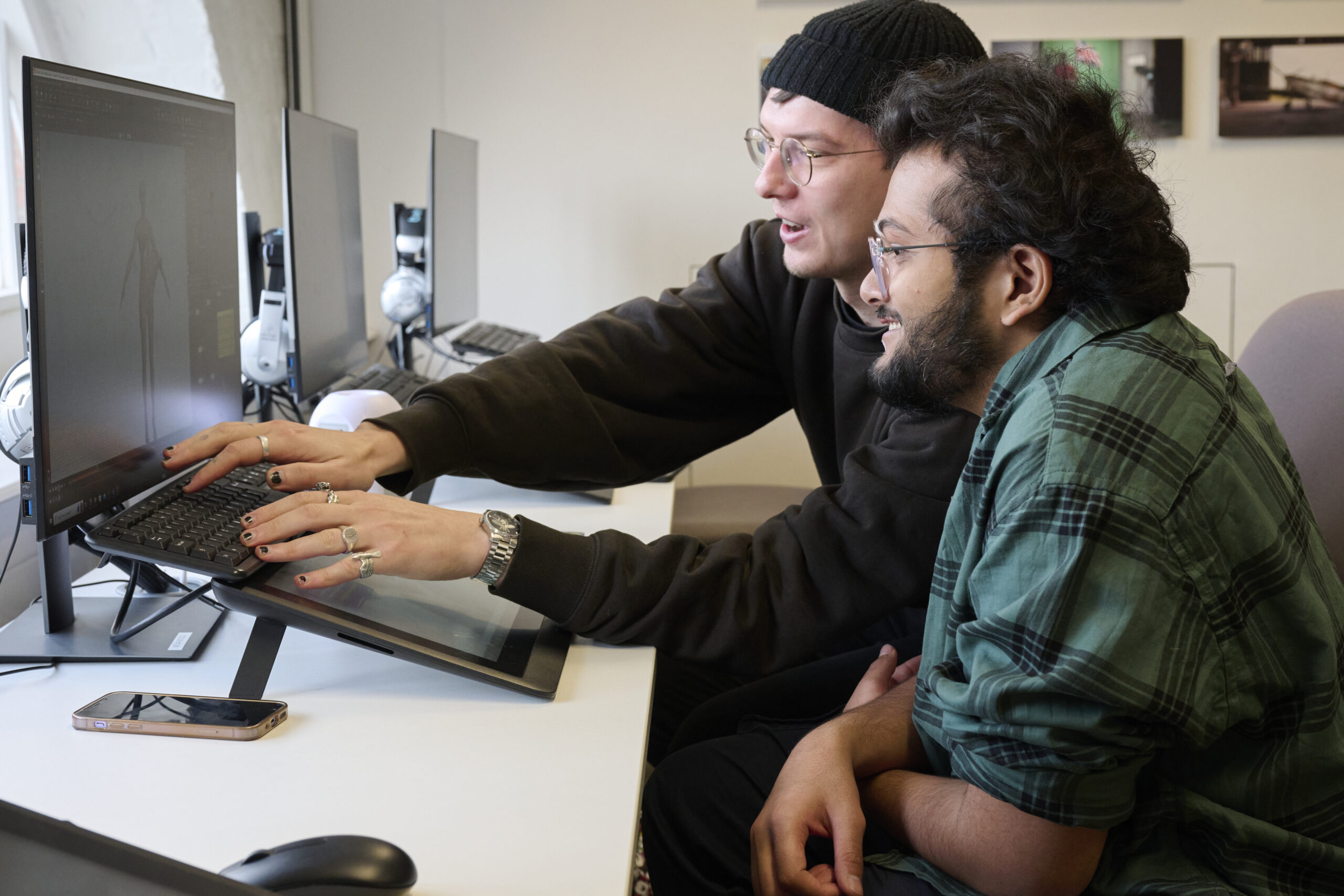 BA Animation •
BA Animation •Norwich named top UK university for production excellence in visual effects
The University has been placed in three categories in the 2025 Rookies Global School Rankings, including the top five for Production Excellence – Visual Effects. -
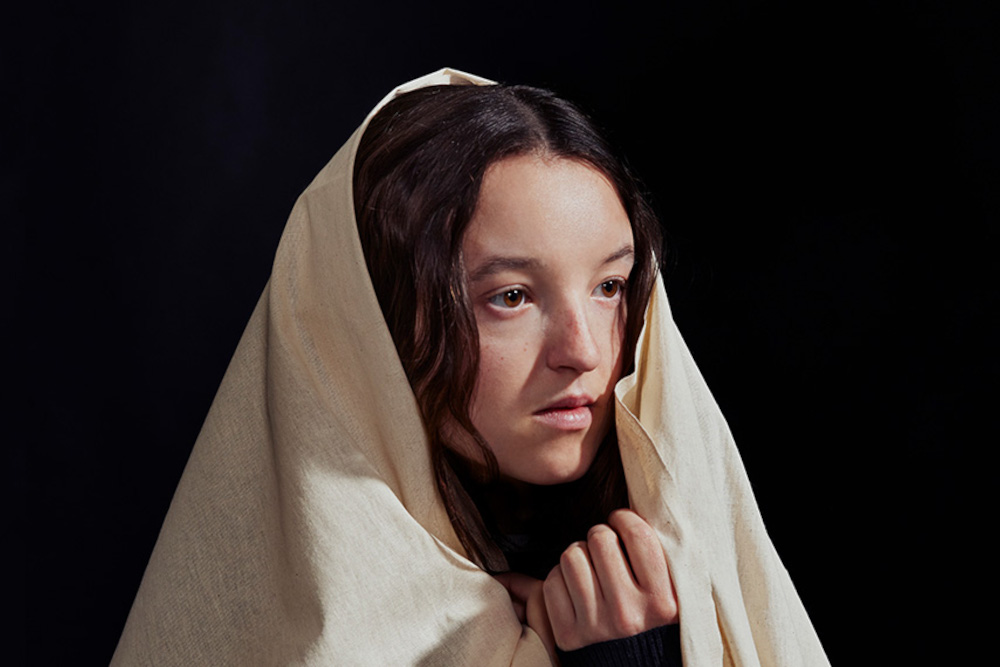 BA Photography •
BA Photography •Entries open for Norwich's 2026 Beyond the Frame photography competition
Entries are now open for our annual photography competition, open to students aged 11 to 19 around the world. -
 BSc Degree •
BSc Degree •Norwich University welcomes new academics to its Psychology and Computer Science courses
Lyndsey Wallace joins the University as Senior Lecturer for BSc (Hons) Psychology, with Jawwad Chattha joining as Course Leader for BSc (Hons) Computer Science. -
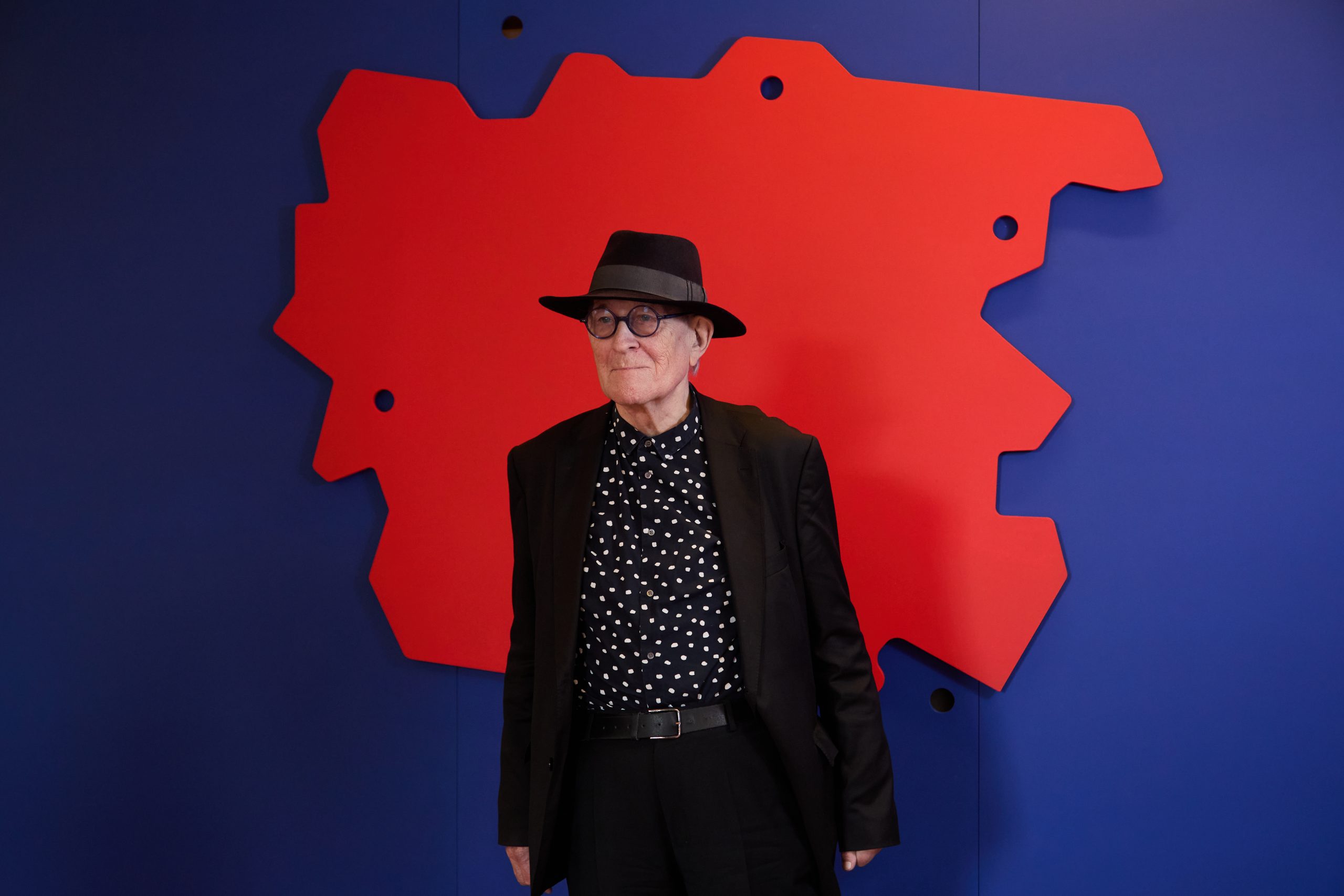 BA Architecture •
BA Architecture •Norwich University of the Arts presents the Peter Cook: Wonder Hub
Norwich University has launched the Peter Cook: Wonder Hub, a vibrant and interactive space for thinking, making, showcasing and debating the creative arts. -
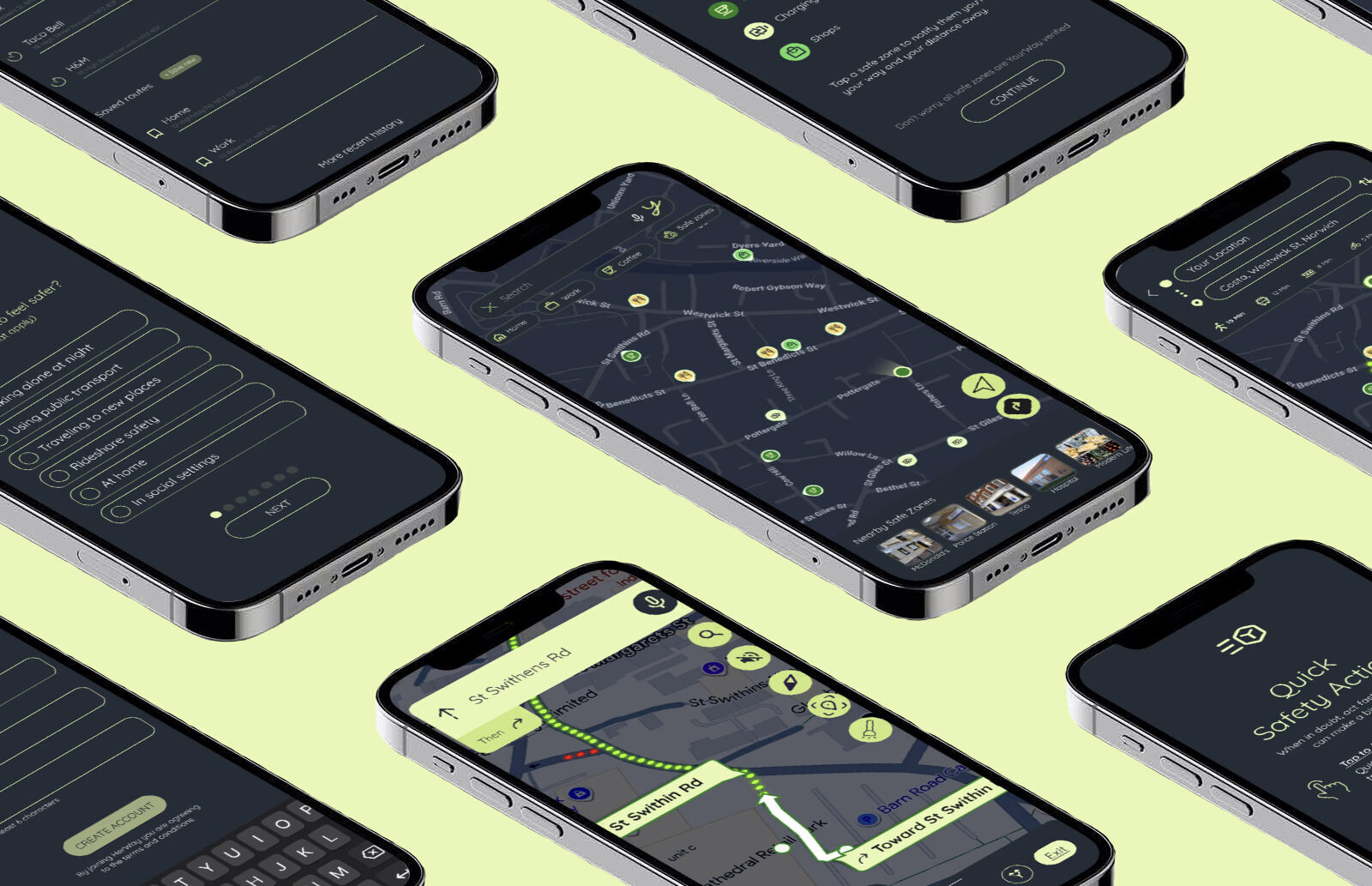 BA Graphic Communication •
BA Graphic Communication •Norwich students celebrate success at 2025 Creative Conscience Awards
Students from Norwich University of the Arts have been recognised across categories in this year’s awards, which showcase work focusing on social or environmental impact -
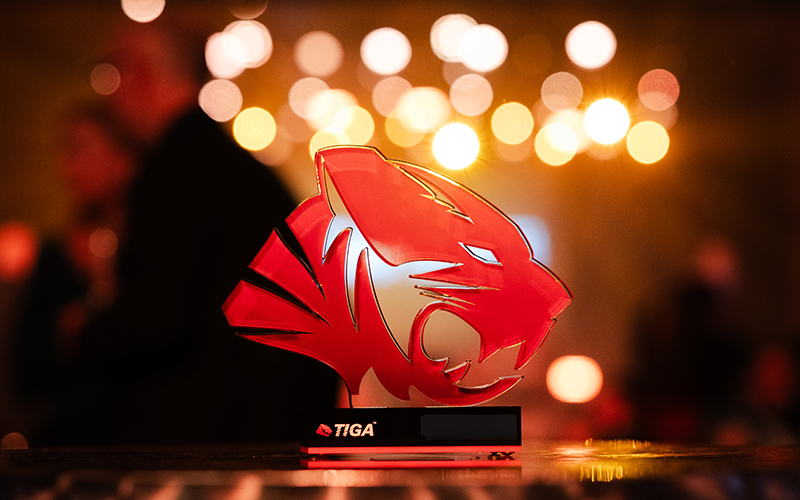 BA Games Art and Design •
BA Games Art and Design •Norwich graduates recognised at TIGA UK Games Education Awards
Charlie O'Shea, BA (Hons) Games Art and Design has been named 'Outstanding TIGA Graduate of the Year: Designer' -
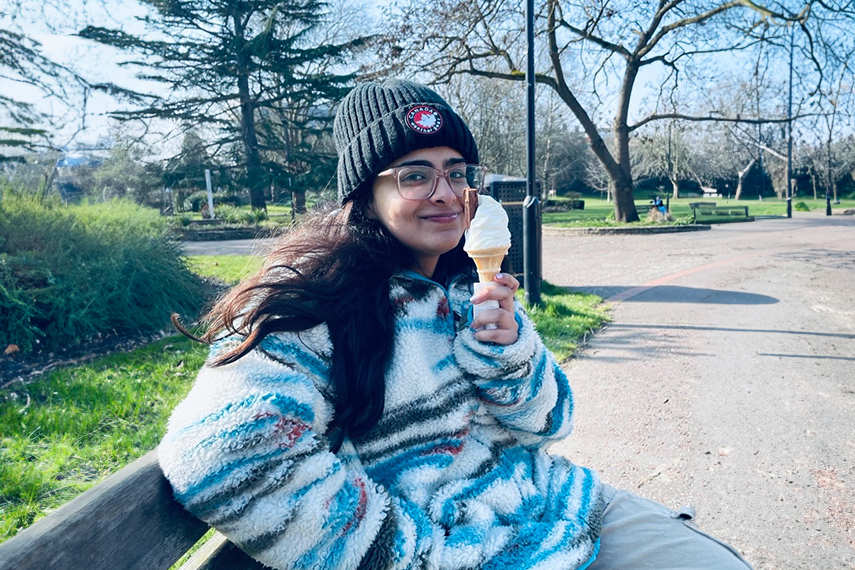 BA Film and Moving Image Production •
BA Film and Moving Image Production •Dear future international students – Diya Vaya, BA (Hons) Film and Moving Image Production
Diya writes about the experience of moving to Norwich from Nairobi, and her advice to future international students. -
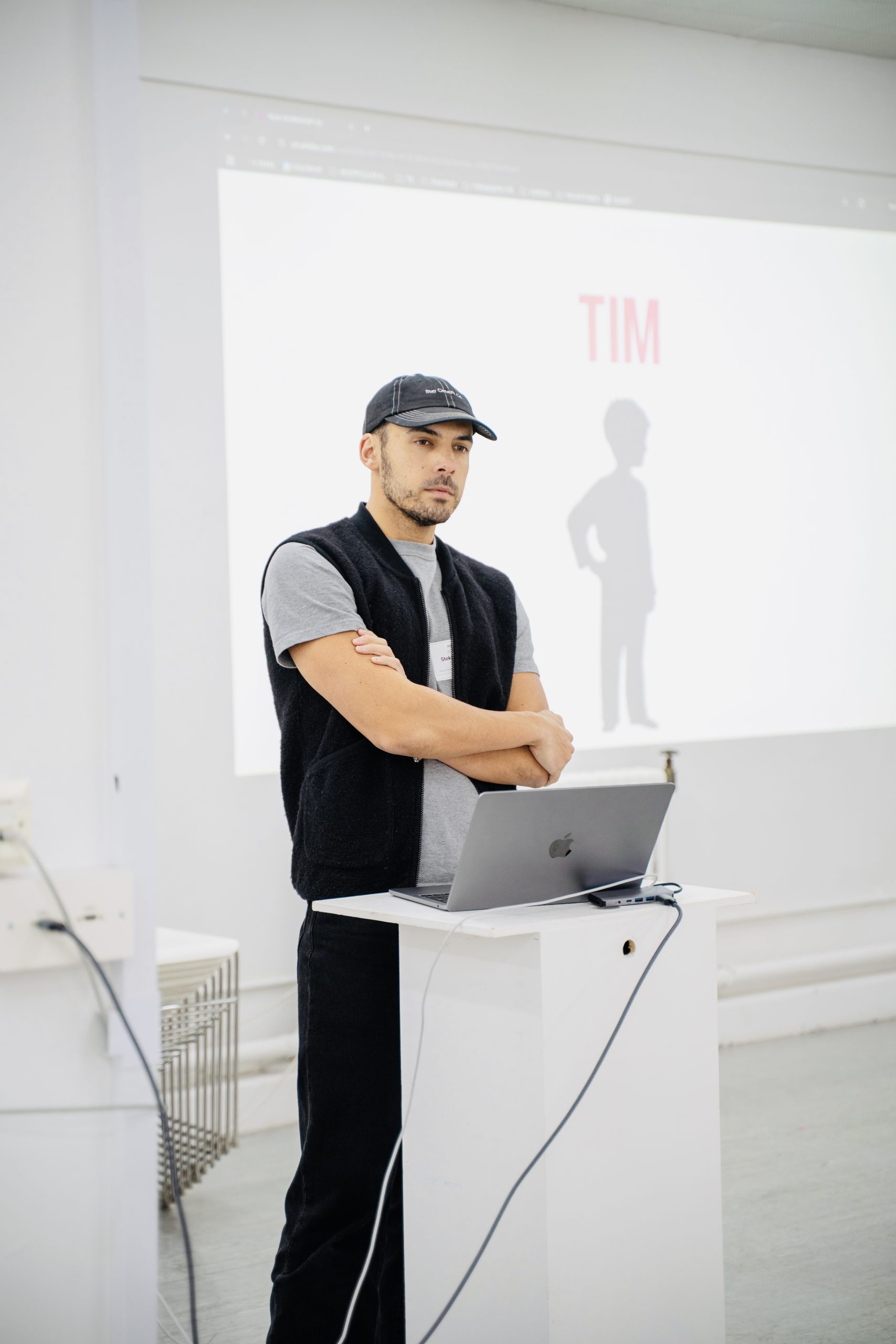 Course •
Course •Inside Interchange Week with Stokely Howard of Trendy Grandad
Stokely Howard, Co-Founder and Creative Director of video production company Trendy Grandad, shares his reflections on Norwich’s cross-course collaboration week. -
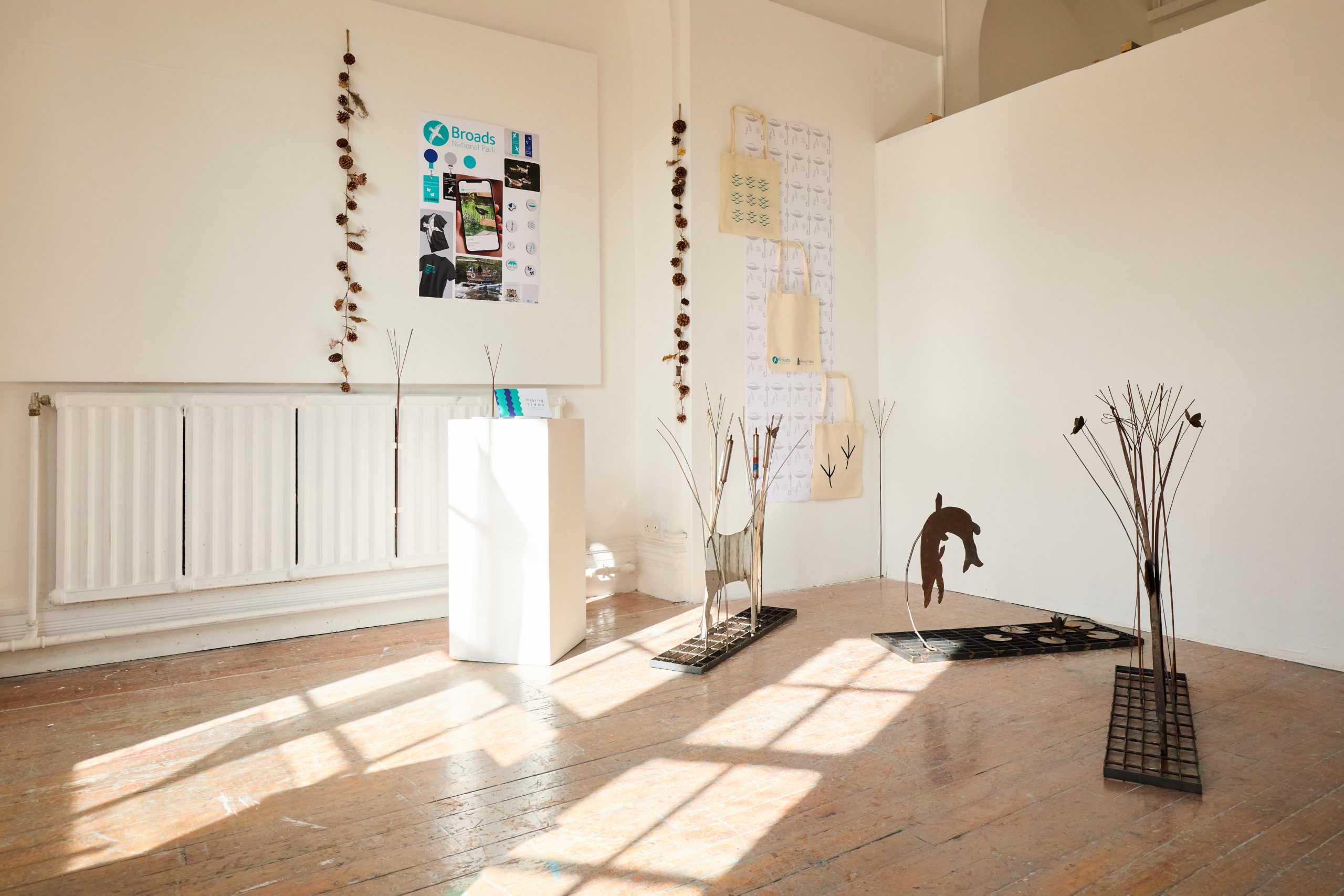 MA Communication Design •
MA Communication Design •Norwich announces Sustainability Award winners at Postgrad Festival 2025
Norwich University of the Arts' Sustainability Awards celebrate students’ commitment to sustainable and ethical practice.
Related courses
Discover our courses and take the first step towards unleashing your potential
- Showing 1-4 of 5 results
-
Visit the Architecture BA (Hons) course page
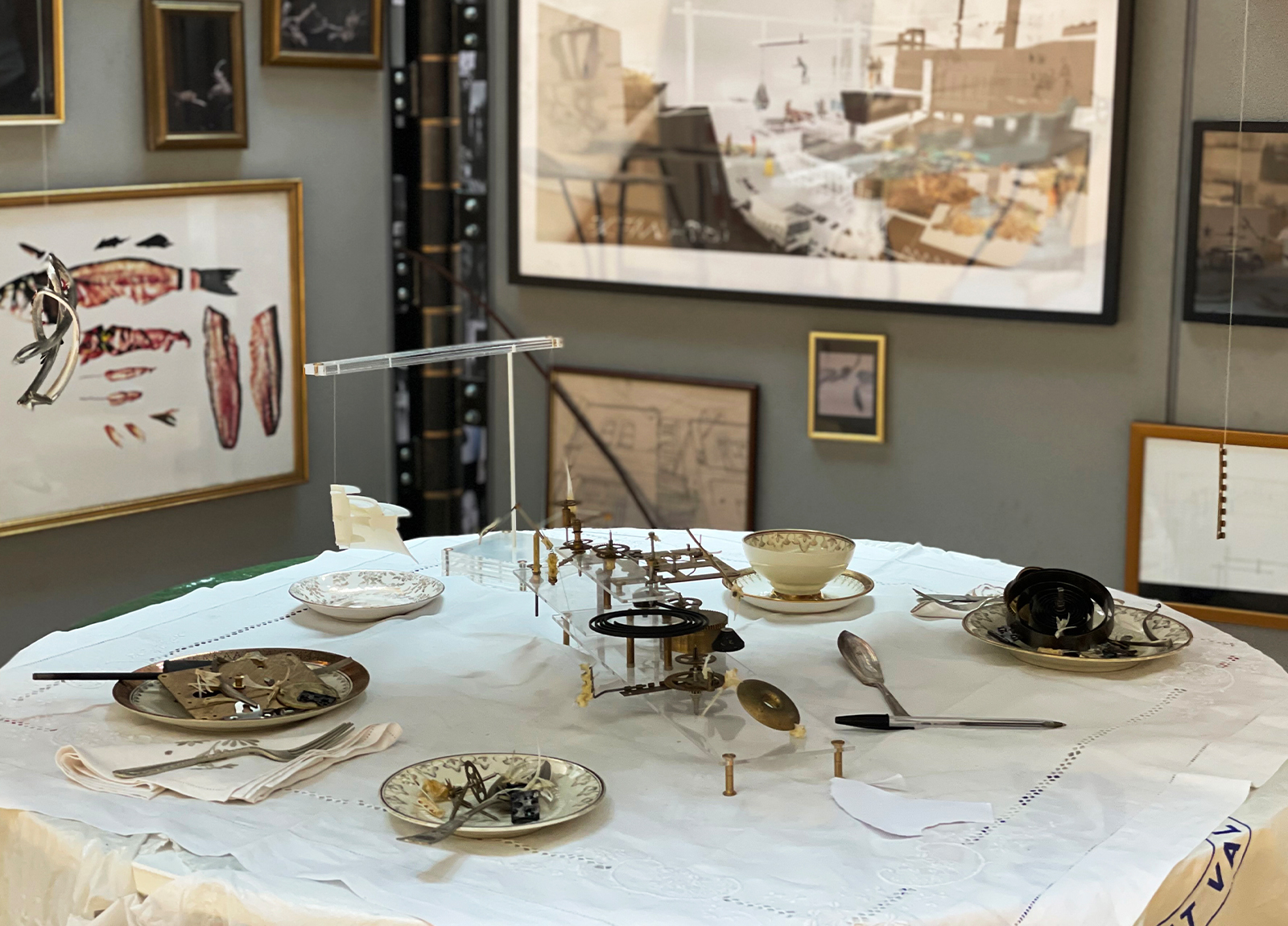
- Filter courses by study level: Undergraduate
- Filter courses by duration: Full time
- Filter courses by start month: September
- Filter courses by subject: Architecture
Architecture BA (Hons)
Push the boundaries of how we think about people, culture and the environment to create innovative and responsible design.
-
Visit the Film and Moving Image Production BA (Hons) course page
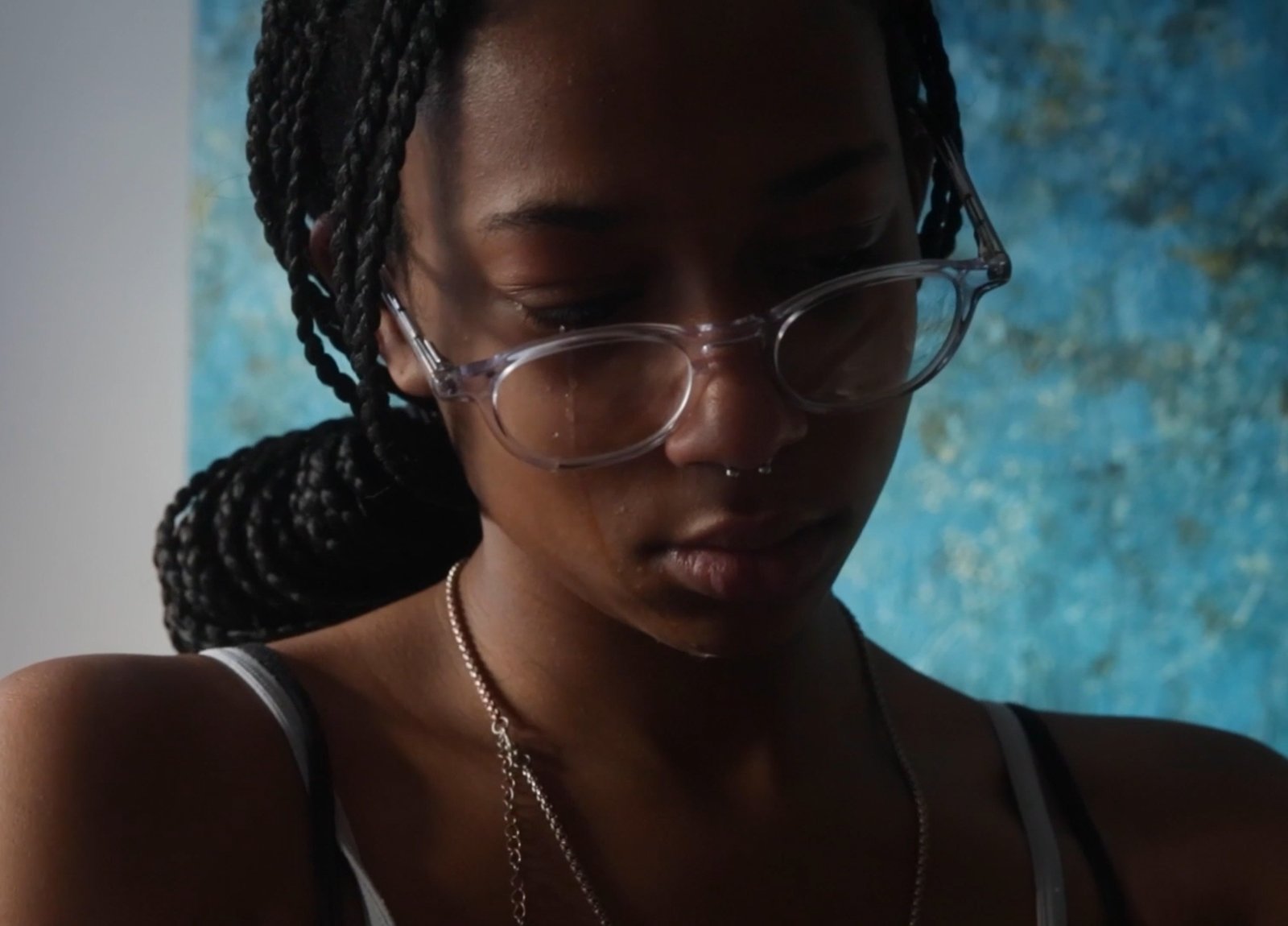
- Filter courses by study level: Undergraduate
- Filter courses by duration: Full time
- Filter courses by start month: September
- Filter courses by subject: Film and Moving Image Production
Film and Moving Image Production BA (Hons)
Unleash your artistic vision by combining the art of creative storytelling with practical industry skills across various filmmaking mediums.
-
Visit the Illustration BA (Hons) course page

- Filter courses by study level: Undergraduate
- Filter courses by duration: Full time
- Filter courses by start month: September
- Filter courses by subject: Illustration
Illustration BA (Hons)
Experiment with different illustration mediums and tools as you build your creative identity and professional skills.
norwichuni_fineart
-
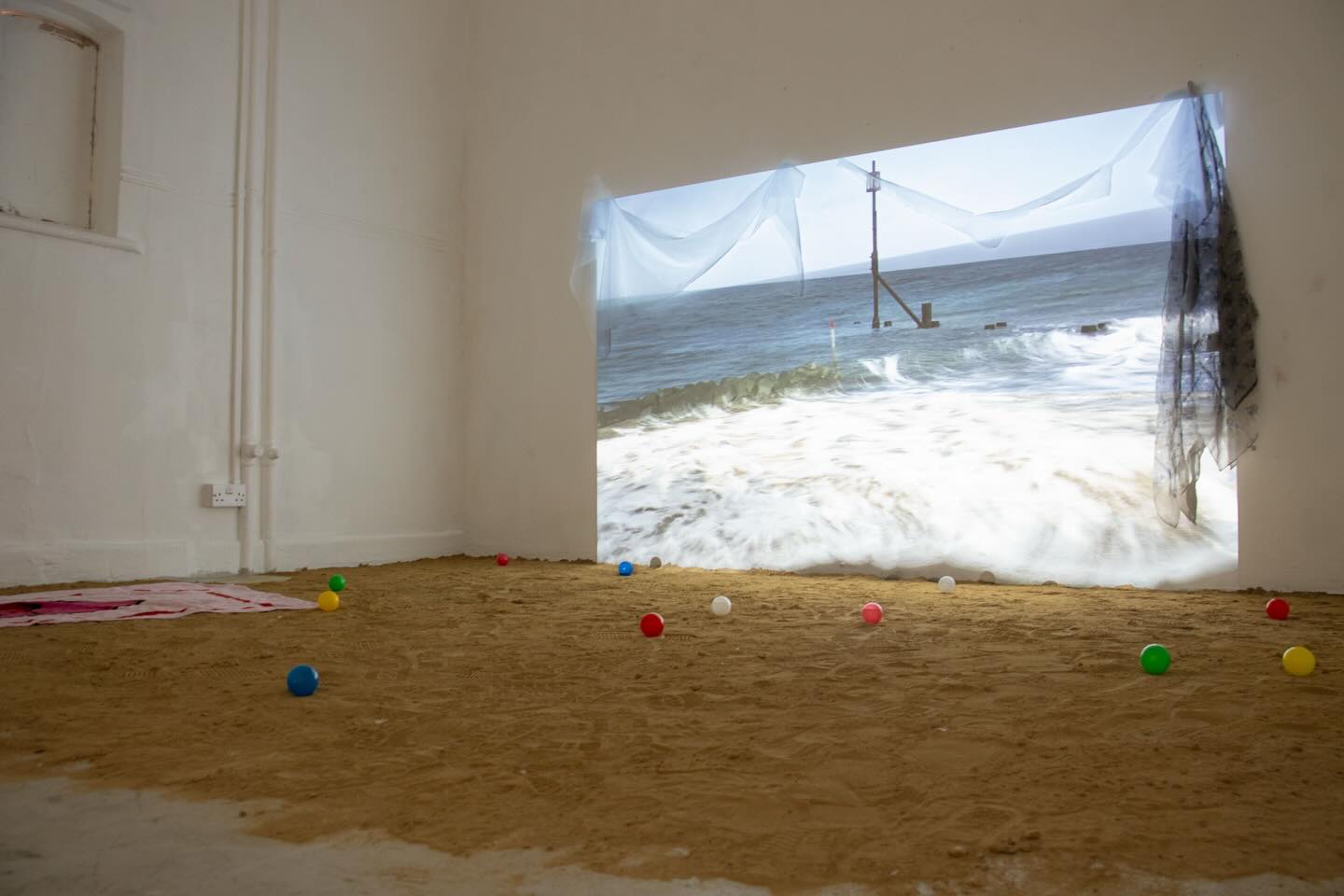
norwichuni_fineart These coming weeks we will share some amazing exhibitions in Project Space 5 while the other Project Spaces are occupied for other installations. This week we have Isla (@isladowman.art) exhibiting “lull between sea and seal”. Isla shares: “lull between sea and seal facilitates the merging of active non-human motion, and static liminal space. It invokes investigation towards the physical space that isolates human and non-human environments. Thick, flat walls pull the mind into solitude and the body out of tune with the earth’s cycles. We turn to windows and screens to gaze upon nature, rather than operating within its steady rhythm. This causes inter-species relations to be reliant on observation, not reciprocation. The flat, reflective surfaces of glass make viewing arduous, concealing and revealing information in ebbs and flows. The beach, transitional zone between land and sea, and the seal, existing on both planes, emanate the energy of a liminal ‘space between spaces’. You are invited enter the space and determine your own relationship between the repetitive and wild Horsey Gap seal colony, and the flat imitation environment.” Thank you for allowing me to document your exhibition Isla! – Zofia #NorwichUniversityOfTheArts #Norwich #Art #FineArt (opens in a new window)
-
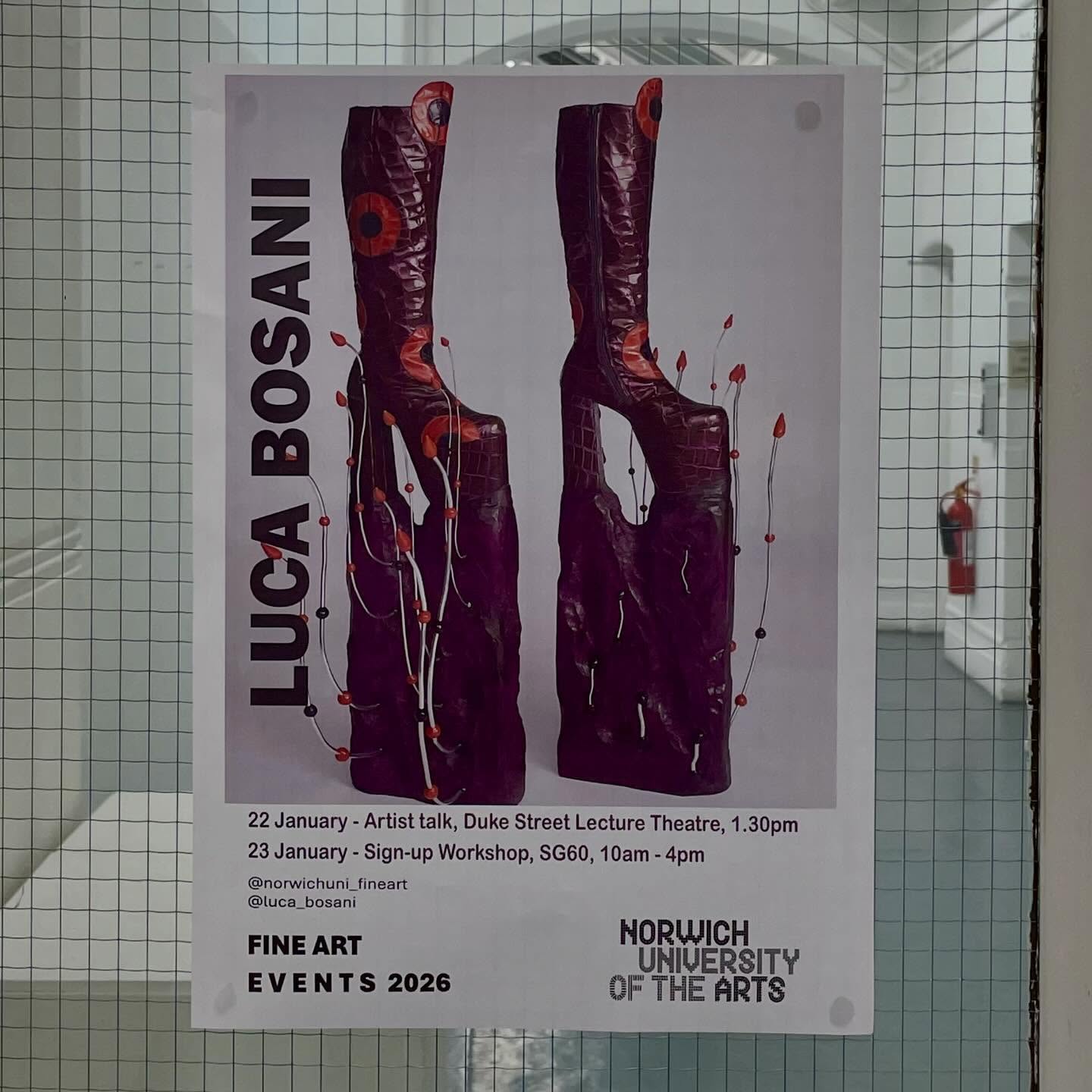
norwichuni_fineart The 2026 Fine Arts EVENTS programme kicks off in style with @luca_bosani who will be presenting an artist talk on Thursday 22 January followed by a workshop on Friday 22 January. A multimedia artist, Luca Bosani’s practice combines sculpture, fashion and performance to question and challenge traditional gender roles. #contemporaryart #norwichuniversityofthearts #norwichuniarts (opens in a new window)
-
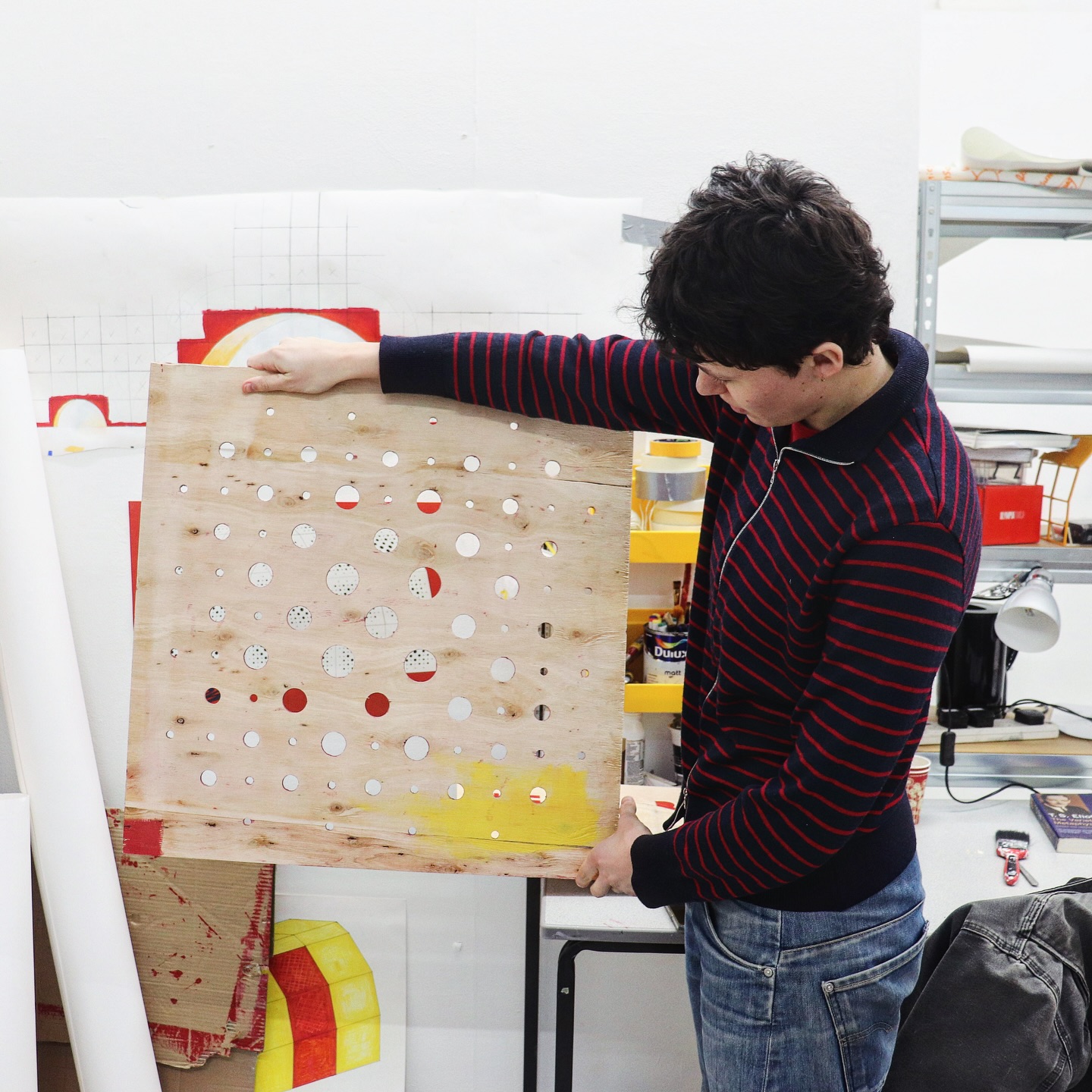
norwichuni_fineart This week’s studio visit is a Then vs. Now with Franka Matthes Thompson (@arguablyokay ), starting with their Third Year work and looking back at their first year. Franka shares more about their work as they start to look towards GRADFEST: “My process is based in channelling an obsession with a specific object to use as a centre point for a period of work. Through means of drawing, model making, photography and writing, I usually work towards a wooden structure within a multi-element installation. In my current project, I want to embody the comfort I have found on many nights and days, admiring the space under Fye Bridge. I want to create a structure that provides a sensory experience that envelopes the viewer in space, sound, and light. Using the tunnel shape of the underneath of a theoretical bridge, as a monument to those moments of ease within the in-betweens and uncertainties of space and place, time and emotion.” Comparing this to their direction in year 1, Thompson’s work focused on “exploring destructions as a means for mapping relationships between people and objects, by condensing long periods of habitual wear into instants of destruction”. It is interesting to see the evolution of Franka’s practice, from moments of destruction and fracture, to spaces of shelter and comfort. -izzie – #fineart #iheartbridges #norwichuniversityofthearts (opens in a new window)
-
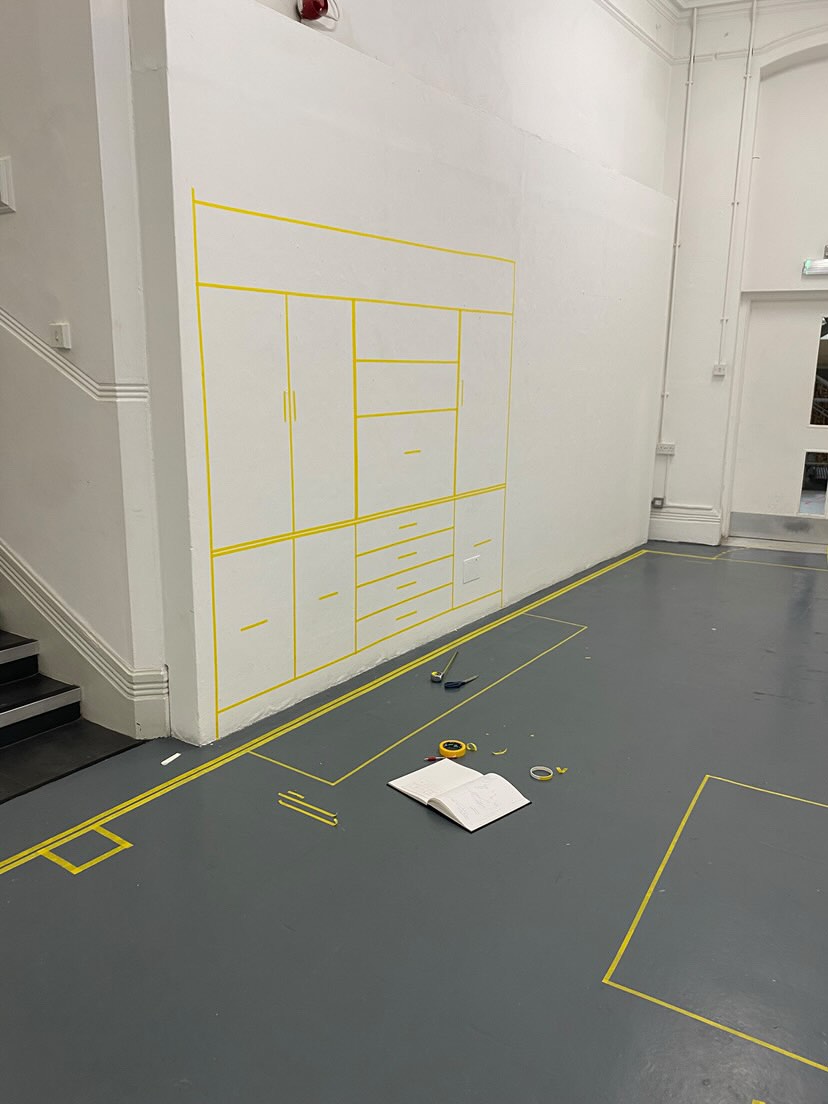
norwichuni_fineart Process vs Final – Exhibtion edition !! Amy (Year 2) @amyhuynh.art Before Christmas, Amy held this amazing exhibition in the project space called ‘What’s next dad?’ which explores stories of her childhood and her fathers, through recreating her family home. Here she has documented the process of putting up the exhibition which is a side we don’t often see. She says that for creating an exhibition “my top tip would be to come with a brief plan but not limit yourself to it. I think it’s important to allow for play and new ideas when they come.” – Backstory behind putting up the exhibition: “Hi my name is Amy Huynh, for this exhibition I decided to create an ongoing work in the exhibition space- a pro and a con. I used 7 rolls of tape in total from the uni shop to complete the instillation. It was a very therapeutic process with using just my eyes to work out sizing and levels. It definitely taught me patience and that it’s okay to have works in progrss up on show- and that’s sometimes the best conversations you have with people passing by- so thank you to anyone and everyone who stopped by to chat throughout the process!” – Thank you to Amy for allowing me to share her own images of creating her exhibition. The last 3 slides are the final outcome of the exhibition. -India #norwichuniversityofthearts #wearenorwich #studentexhibition (opens in a new window)
-
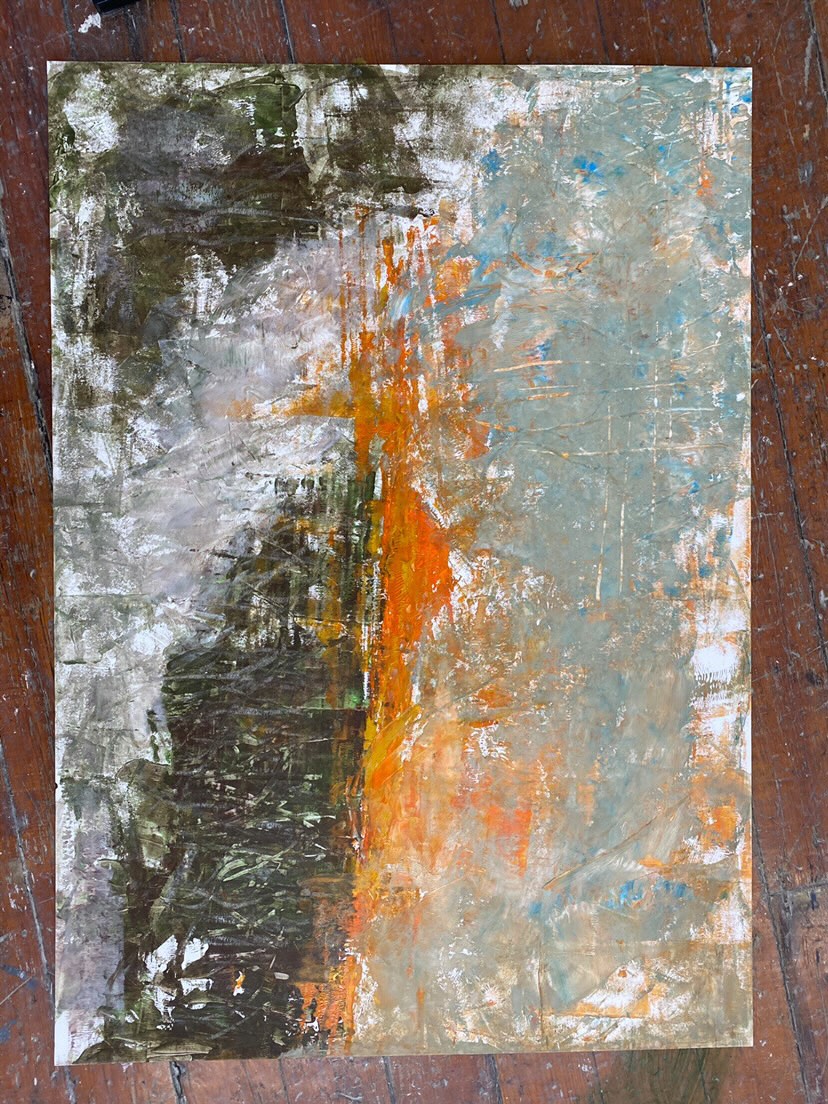
norwichuni_fineart Process vs Final 1. Will (Year 1) @will_choat ‘My slowly shrinking view of the world’ Will describes how this piece “about the perpetual motion of life and the impossibiliy of recapturing the people and memories we have lost, leaving only mental imprints.” Acrylic, chalk and oil pastel on board 2. Han (Year 2) @sneakydoodle_ ‘Dante and Virgil on Earth’ Acrylic on canvas 65×90 3. Halima (Year 3) @halimartss ‘Marrowborn’ Acrylic 81 x 101 cm -India #norwichuniversityofthearts #wearenorwich #processvsfinal (opens in a new window)
-
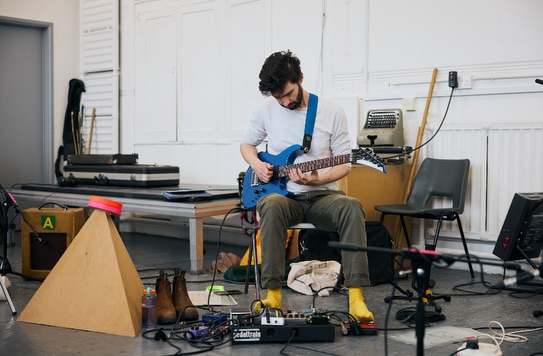
norwichuni_fineart THIS WEEK UPCOMING FOR ALL STUDENTS! Don’t miss out on… 1)THIS WEDNESDAY 14TH JAN- Come see a sound performance closing of Ben McDonnell’s (@bcjmcdonnell ) exhibition ‘Coming Apart and Falling Together’ in the Bank Plain Lobby 5-6pm , and launching his graphic notation book Études. Part performance, part concert and open rehearsal, the event brings staff and students together to interpret the scores! Definitely one to see! 2)THIS THURSDAY 15TH JAN- STRATEGIES 2026: ONLINE SYMPOSIUM (9:30- all day)! This one day professional practice symposium will be online on Teams (follow link in your timetable) OR come to the watch party in SG60b (for some tea and biscuits).This event is open to all years! The focus of this year’s symposium will be socially engaged practice and making artwork in the public realm. With guest speakers Jade-Marie Anderson(@jmc.anderson ), Aya Haidar (@iamayahaidar )and Julia Vogl (@juliavogl_socialsculpture ) Attendees are asked to bring a pair of socks (any pair) and a mug/water bottle. All will be revealed on the day… – Don’t miss out on these two great events! – #norwichuniversityofthearts #norwichuniversity #wearenorwich (opens in a new window)
-

norwichuni_fineart Welcome back to the first studio visits of 2026! We start this week by visiting Third Year Fine Artist Brigitte D’Angelo (@brigitte_dangelo ) whose work spans all the way from printmaking to sound! She shares: “My practice is evolving as I try to find the connections that drive it. I’m drawn to colour, dynamism and light, and I use repetition as a meditative escape from a chaotic world. Sustainability is important to me, so I repurpose off‑cuts from the 3D workshop and rework earlier pieces. Working across acrylic, ceramics, print and projection. I’m now creating text‑based pieces that reflect my lived education: a working‑class upbringing in a seaside town, shaped with the energy and memories of funfairs and clubbing.” Meanwhile, Third Year Fine Artist Daniel Tyhurst (@danieltyhurst ) has been looking more towards a darker subject matter. He shares: “My practice mainly revolves around what I call ‘Morbid Attraction’ why am I so drawn to the grotesque? Over the years of study at university I have discovered a lot about myself and I believe it comes down to my certain nature of the enviroment I have grown up in, along with a diagnosis of ADHD and ASD in my late 20s it really did explain alot about how I perceive the world around me and the constant feeling of being on the outside looking in unable to truly connect with myself, from that there’s always been a certain level of frustration I’ve always been in a battle with, but as my practice develops so does my understanding of myself and I like to think on a baseline level this comes through within my artwork” What an exciting first week back of term! Tune in next week’s visit which may involve a throwback 🫢 – #fineart #norwichuniversityofthearts #art (opens in a new window)
-
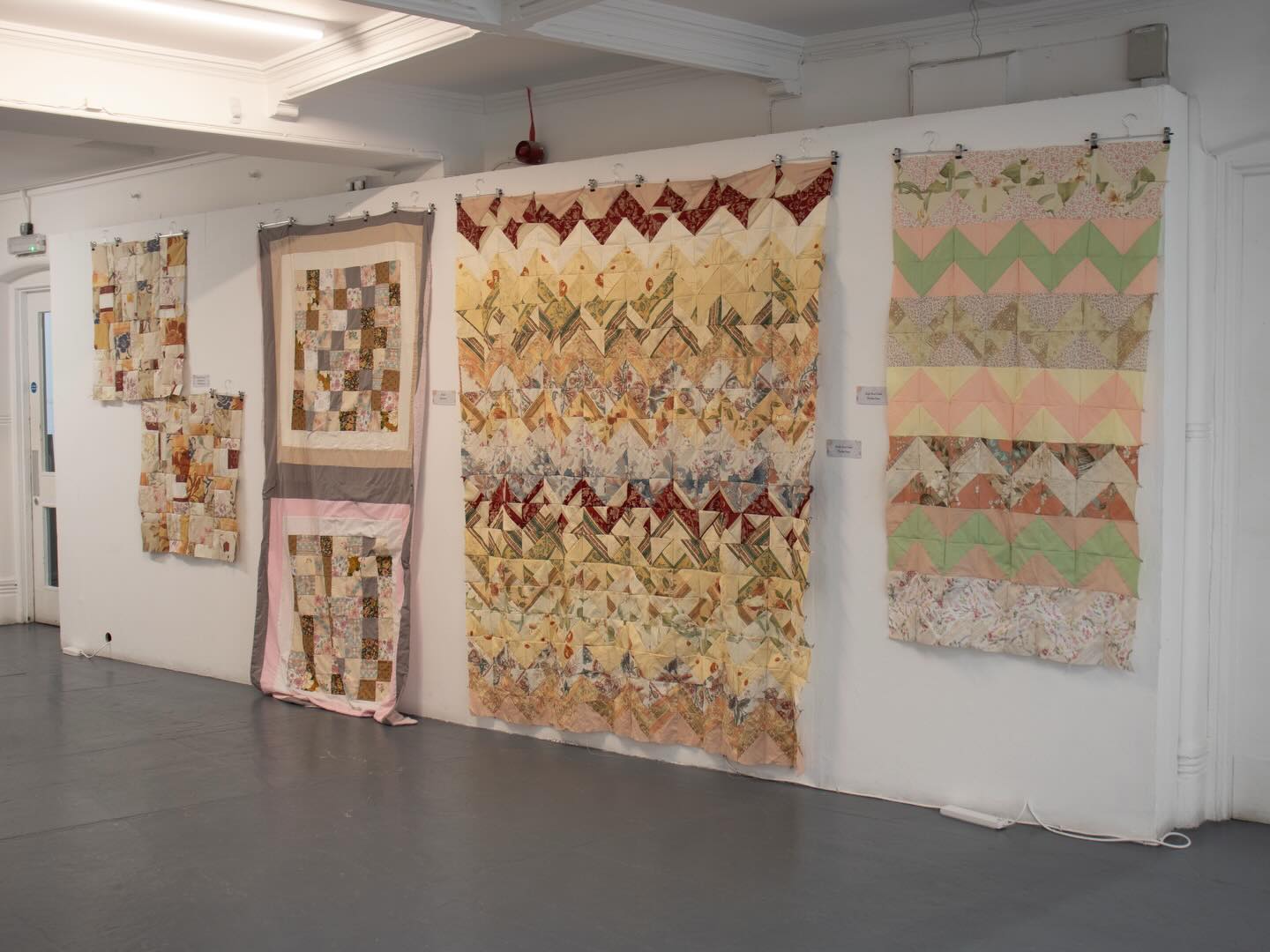
norwichuni_fineart Welcoming us back to the new term @charlotteobrayart exhibits “It’s Rubbish” in Project Space 3. “My artwork is about homemaking and the skill that goes into doing domestic tasks. As a modern homemaker I want to show my artwork to people so they can look back at traditional housewives and see just how hard it was to do what they did. Living in the modern world my aim is to make the homemaking role gender neutral and encourage everyone to source cheap materials and make for their home, because I feel reviving these traditional skills will help young people with the cost of living crisis we are all trying to deal with. ” Thank you for allowing me to share this amazing installation! – Zofia #NorwichUniversityOfTheArts #FineArt #ArtExhibition #art (opens in a new window)
-
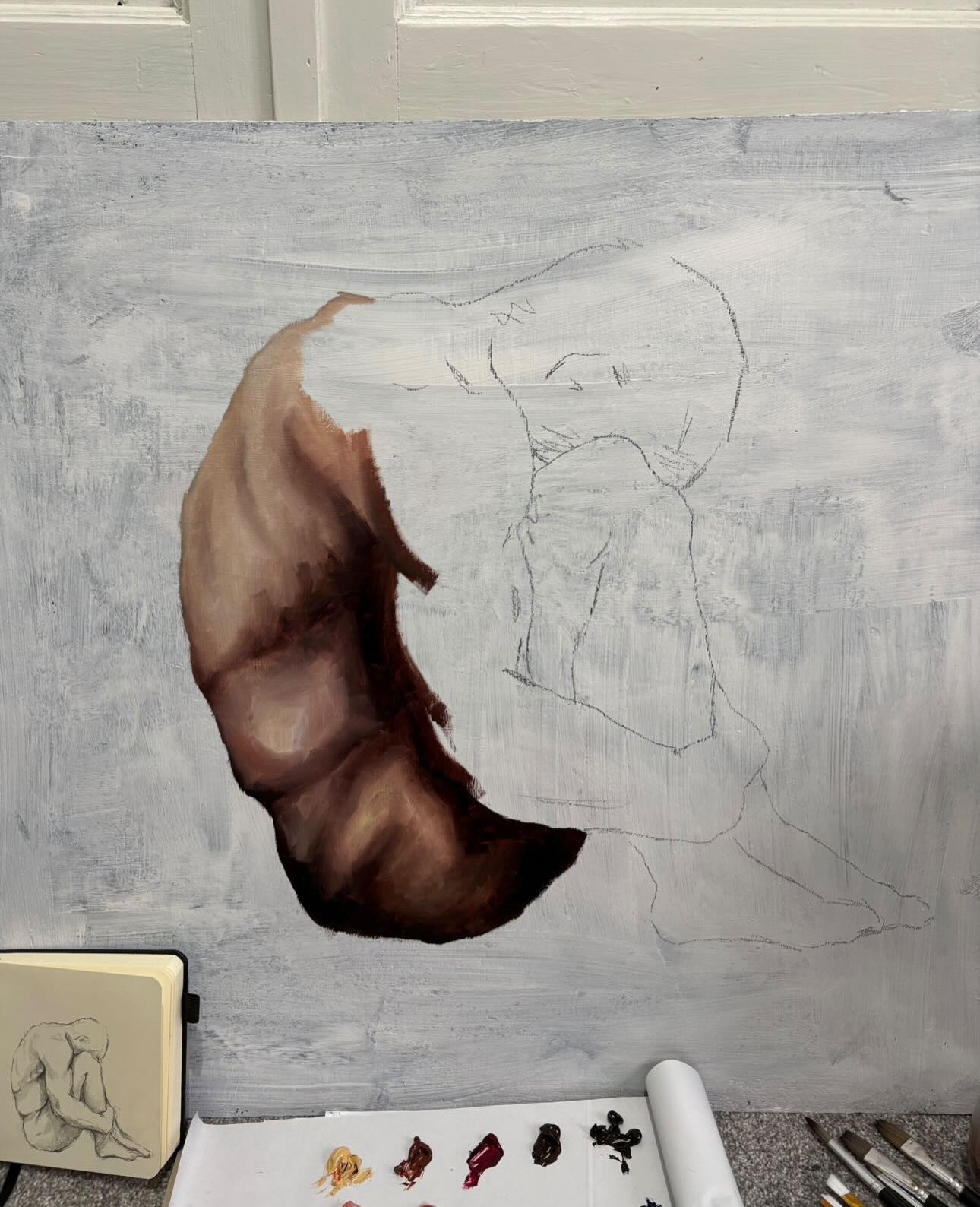
norwichuni_fineart Process vs Final This is a new series where we want to showcase student work while sharing the creative process behind these final outcomes. 1. Millie (Year3) @milliehornsbyart ‘Self Containment’ Oils on board 25×27 in (Slides 1-3) 2. Zofia (Year 2) @zofiaconway ‘Is this what you wanted?’ Oils on canvas 29.7×42 cm (Slides 4-7) 3. Lilyann (Year 1) @art._.by.lils Oil paint 9x12cm (Slides 8-10) 4. Tarryn (Year 1) @art.by.tarryn Lily Flower Acrylic on heavyweight paper A2 (Slides 11-14) This painting is the initial idea behind the outcome of graffiti flower (slide 15) Secondly, they have experimented with cello tape transfer on a monster can which has sparked the outcome of the acrylic painting on the very last slide. Thank you to everyone who sent their work and keep them coming! Please send in your work, we would love to feature your creative process on the page! -India #wearenorwich #fineart #processvsfinal (opens in a new window)
-
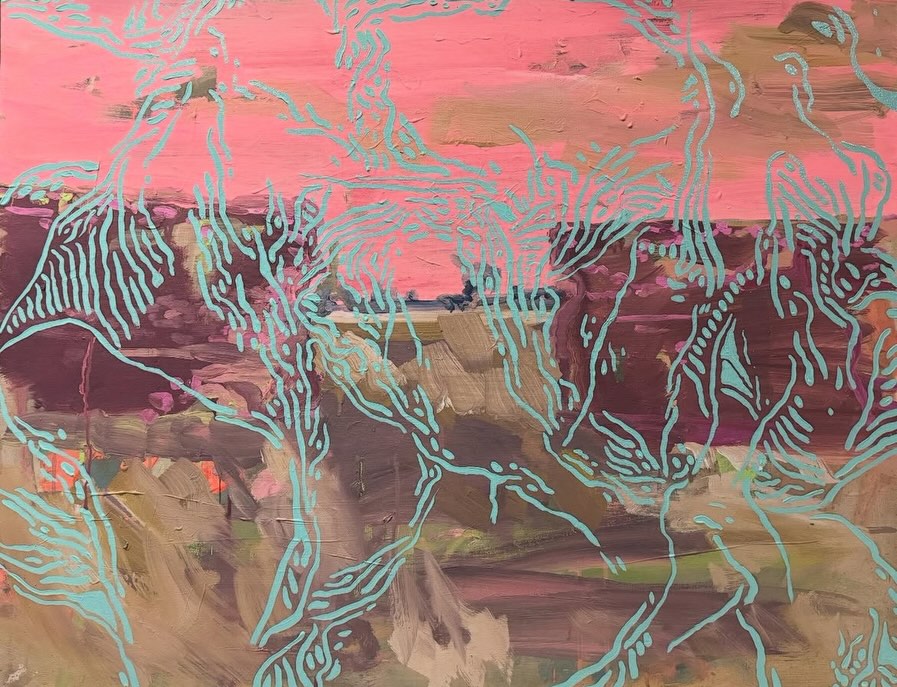
norwichuni_fineart Friday Fun!! Prompt – Pink Belated post due to Christmas delay but thank you to those who submitted. Incredible paintings from all ! Credits: 1. @craigabarber 2.@indiam_art25 3.@zofiaconway -India #fineartfridayfun #norwich #pink (opens in a new window)
-
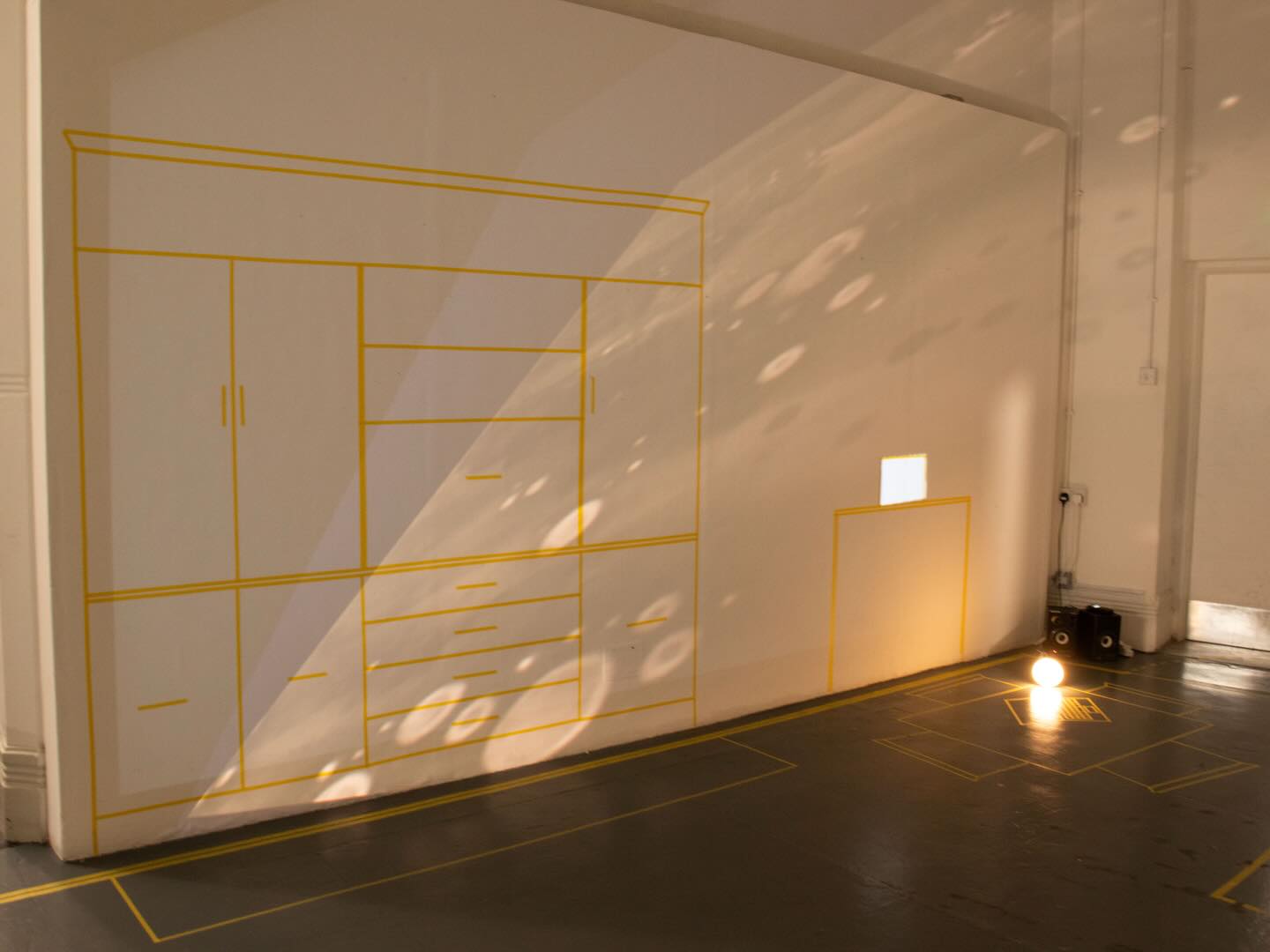
norwichuni_fineart Looking back to some amazing installations we had a few weeks ago… Second year Artist Amy (@amyhuynh.art) shows “What’s Next Dad?” In Project Space 1. She says “Welcome to my house. Make yourself comfortable. I am an interdisciplinary visual artist exploring themes of diaspora, longing and childhood through moving imaging and instillation- Exploring specifically mine and my father’s childhood. I take you on a journey into my den, where I express feelings of nostalgia. The simplicity of the tape and lines show you the skeleton of the place my family filled with love. This house I have rebuilt holds stories and memories worth sharing, I am showcasing snippets of time- his childhood through mine.” – In Project Space 3, Ez (@eternalskullart) displayed an array of wonderful work. They say: “My work explores the communication between language and drawing. Taking inspiration from graffiti and Asemic text to discover how this relationship is perceived.” – Finally in Project Space 5, we had second year artist Zofia performing “Things I can’t say, but will Sing”. She says: “ ‘Things I can’t say, but will Sing’ displays the honesty and rawness I have with myself when writing songs. Stereotypically I lean towards painting and through bringing my song-writing and performance skills into my practice encourages the vulnerability I can have with myself, and pushes me to share this vulnerability with others.” – Thank you all for allowing me to document these incredible installations!! – Zofia – #FineArt #NorwichUniveristyOfTheArts #WeAreNorwich (opens in a new window)
-
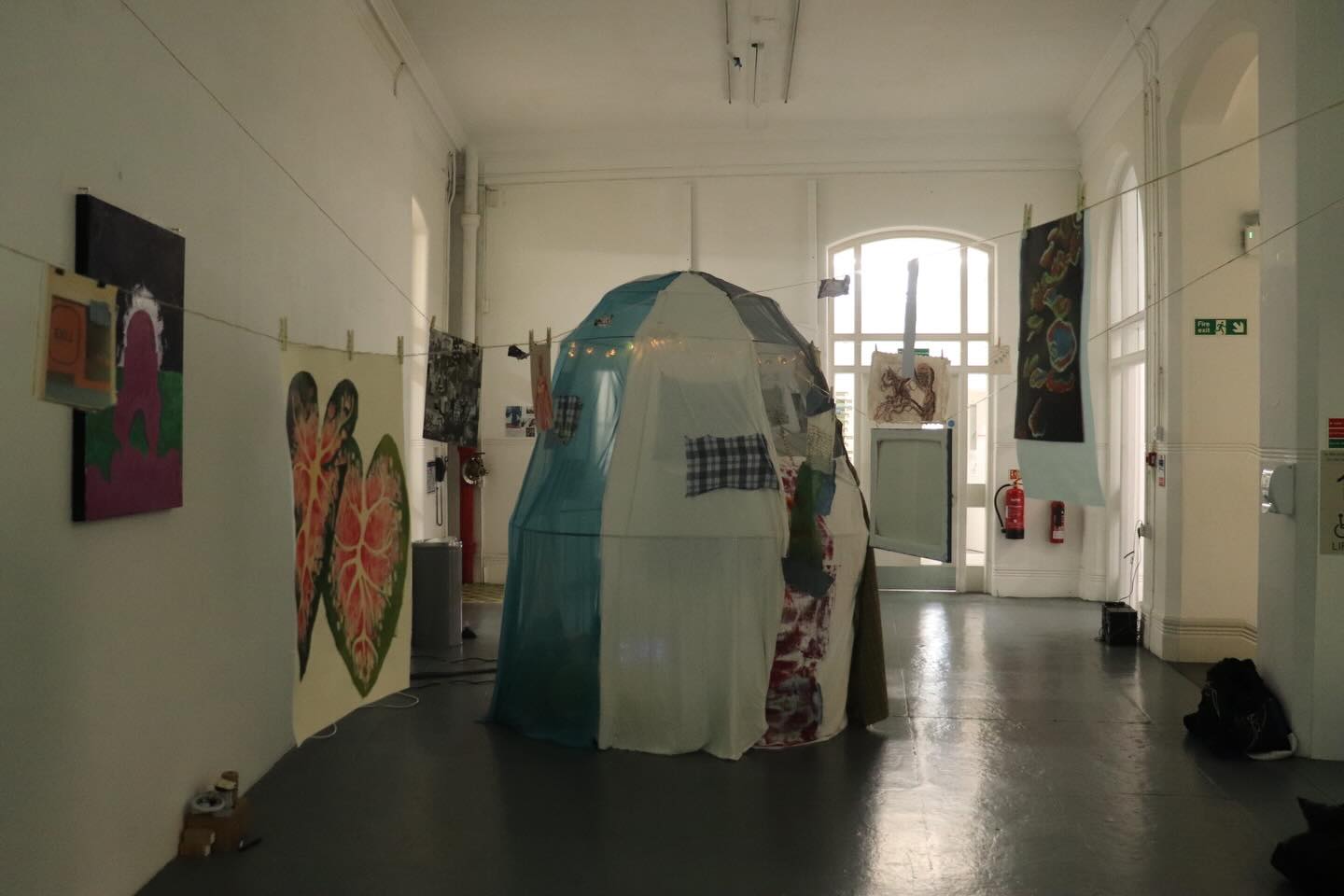
norwichuni_fineart Last week, Year 2 Fine Artist held collaborative exhibitions across three project spaces in the St George’s building! Such amazing work! Every project space used for these exhibitions were brought to life with everyone’s unique take on displaying and creating artwork! I hope everyone got a well deserved pat on the back for their hard work, and thank you to everyone who came to see it! <3 -Ann #FineArt #NorwichUniversityOfTheArts #norwichuniversity (opens in a new window)
-
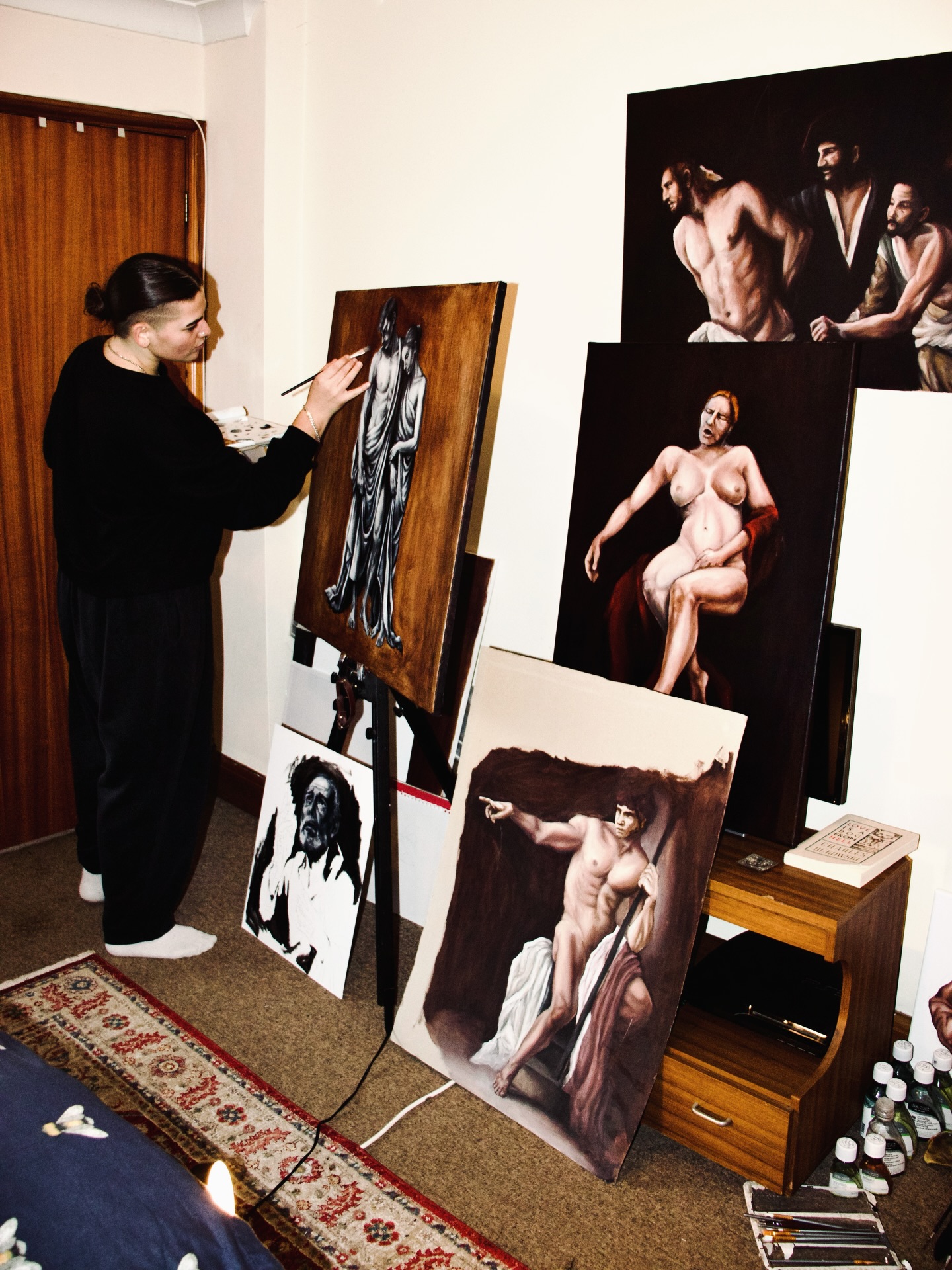
norwichuni_fineart Welcome back to this week’s studio visits! We started this week away from the St George’s building, and in Third Year Fine Artist Millie Hornsby’s (@milliehornsbyart ) home studio! She shares more about her work: “ My work is really influenced by Baroque painting, especially Caravaggio. I like painting because it lets me focus in on small details and really control how things are seen. Lately I’ve been moving away from my usual dark backgrounds and making work that feels more playful, which has been more fun and has helped me explore deeper meaning naturally.“ Meanwhile, Year 1 Fine Artist ViiV1D (@viiv1d_ ) has been taking at a different approach in his work. He shares that: “currently i’m exploring ideas surrounding consciousness and how we interpret things.Ive been creating these cog-like discs that are almost like constellations or ethereal worlds trapped in two-dimensional space, they remind me of micro cities and a documentary called (Proteus: A nineteenth Century Vision (2004) that explores deep sea organisms. I like merging the mechanicalness of machines and technology with the organic, of which I take heavy inspiration from H.R. Giger’s work when I’m drawing creatures, while i’m also influenced by my own dreamscapes and imaginative spaces, through the process of visualising spectral constructions over the living “waking” world. I’ve also recently been getting into Rorschach ink blots, which speak to me as unobjectified versions of things that have not yet been interpreted and given meaning, in a limbo of dissociation, vessels to be filled with the viewers individual contexts to spark new meaning unique to each who view them.” (artstation: https://viiv1D.artstation.com ) Thank you both for having me! -izzie – If you are interested in your own visit next term and are a current student, please don’t be a stranger! Drop us a DM! – #fineart #norwichuniversityofthearts #art (opens in a new window)
-
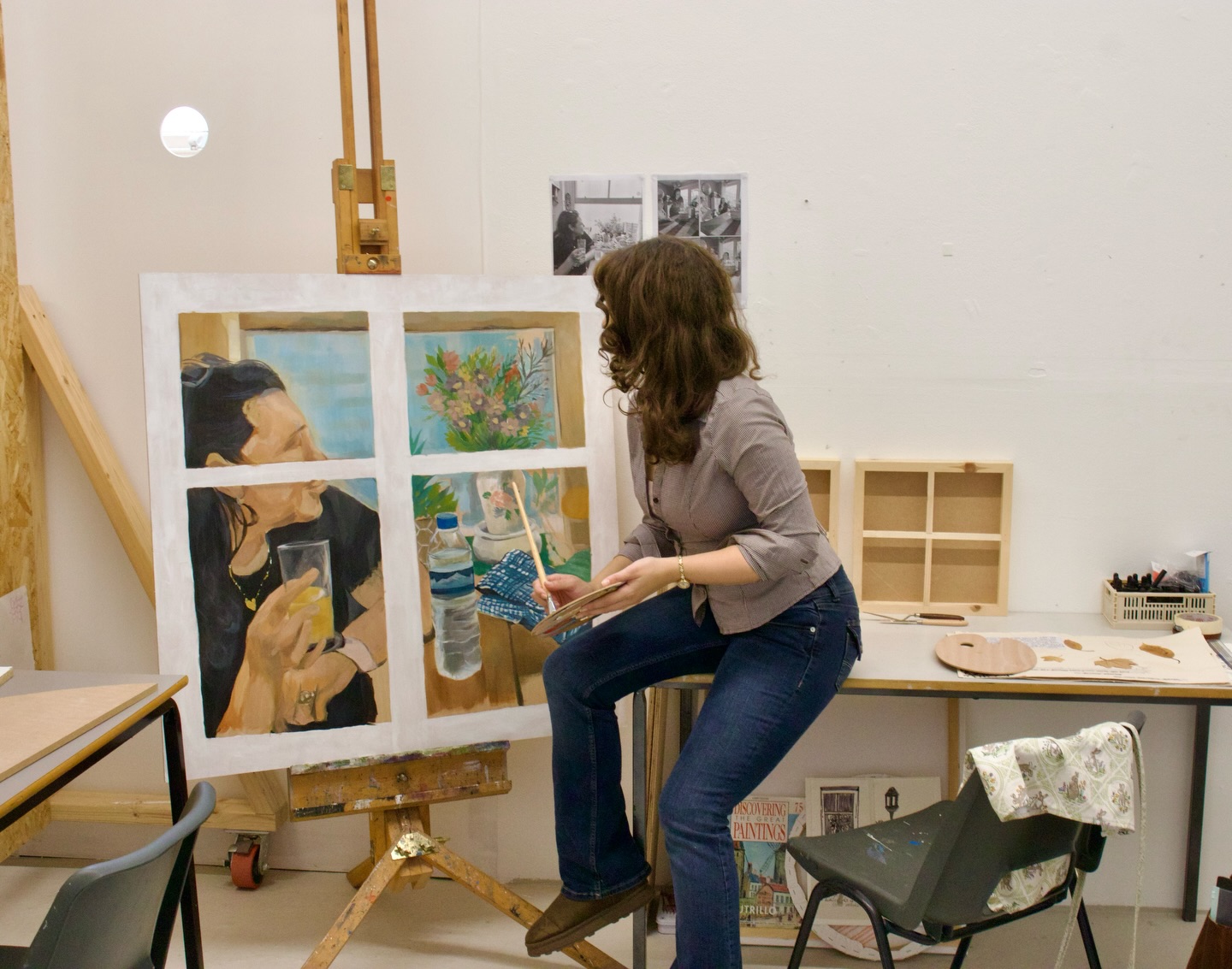
norwichuni_fineart Welcome back to this week’s studio visits! We start our visit with Year 3 Fine Artist Chelsea Nel (@figuratively__yours ). She shares more about the avenue her work is heading down in her final year: “My practice explores memory, narrative, and family, how moments of warmth and familiarity surface through fleeting sights or sensations. I’m drawn to the idea of carrying comfort: the quiet longing felt when warm light spills from a window, that resembles a better time or the presence of loved ones. Through mixed media (combining painting, text, and printing techniques)I navigate how language and image can together communicate this emotional space. My work invites viewers to reflect on their own sense of comfort and ask: what would be inside their window?” Meanwhile, Year 1 Fine Artist Leo Michael Johnson (@artbyleoj ) has taken his experience living in Norwich this term as an inspiration for creative practice: “My practice is very multimedia based, and I’ve explored this during BA1a. My project ‘Community’ focuses on immersing myself within the new locality I now live in. As Norwich is a city, and I’m from a small village up north near Manchester, the culture, environment and surroundings of this Cathedral City have influenced my wonder to create. Most of my samples capture the atmosphere of Norwich, mostly black and white charcoal samples and some abstract ones using watercolour. I usually have no set direction; I let my creativity flow and the outcome unfolds naturally. Art is my passion, my voice and perspective. I have also worked with film, recently having my short ‘The Aspect Of Change (2025)’ screened at NUA. This explored my experience leading up to university and how it impacted me. I’m excited for future projects, such as a short I am currently working on called ‘internalised’: a Queer story highlighting internalised homophobia. – Thank you both for having me! Can’t wait to share next week’s visit! (perhaps an untraditional studio space… 🫢) -izzie – #fineart #norwichuniversityofthearts #norwichuniversity (opens in a new window)
-
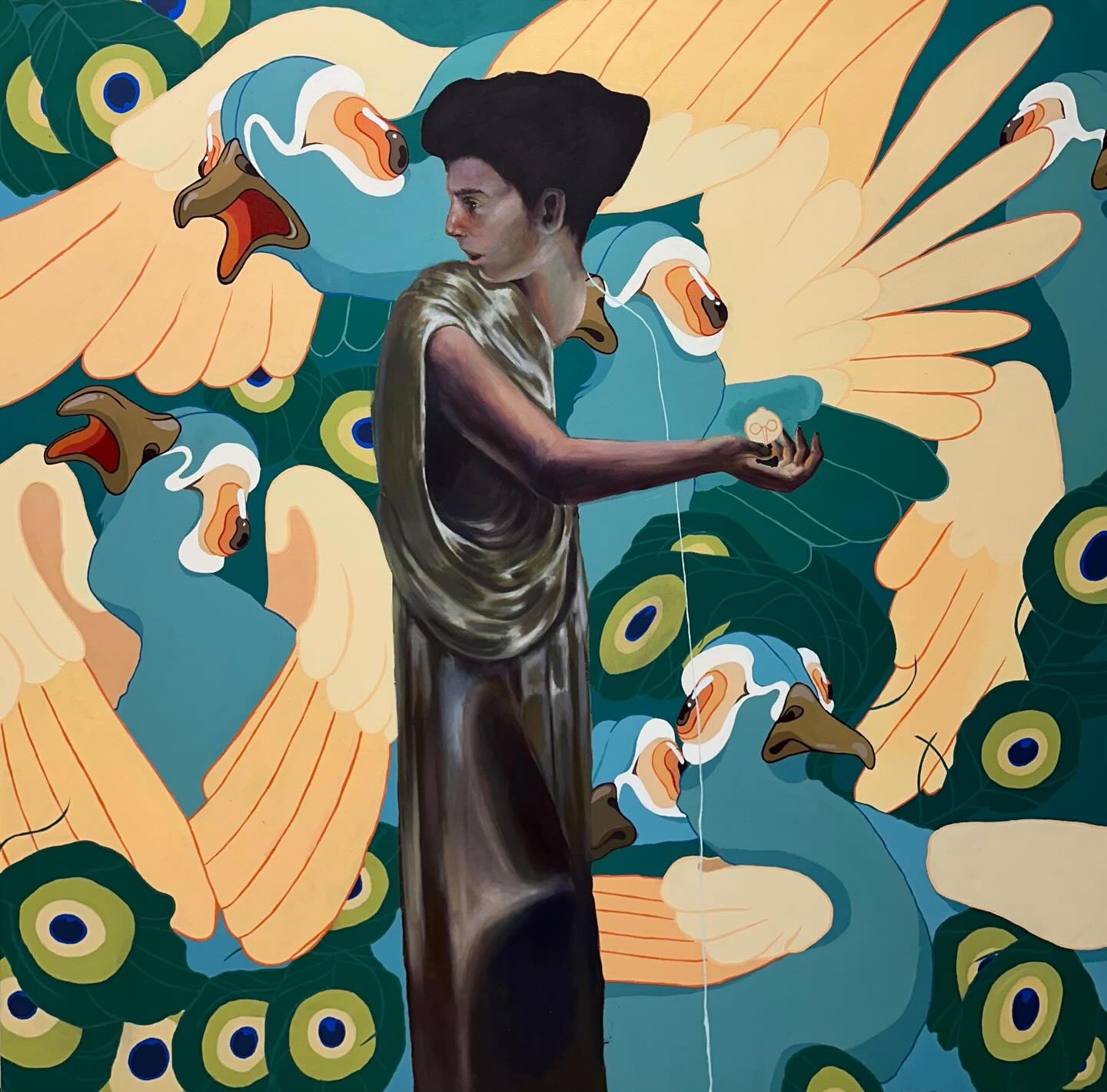
norwichuni_fineart ‘Freedom’ Acrylic on canvas 150×150 A solo exhibition by Year 1, Kristina (@bandramalieva_2_ ) in PS1 for shown for the first week of December. This is a piece to end her first submission in Year 1. Kristina describes how this canvas piece “specifically centres around Diogenes’s idea of freedoms and the way he embodies that fact. The work follows two realities. The one of imaginative ideal happiness and the other the reality of our material world.” You can find Kristina in her studio space GU92c! – – #fineartists #wearenorwich #norwichuniversityofthearts (opens in a new window)
-
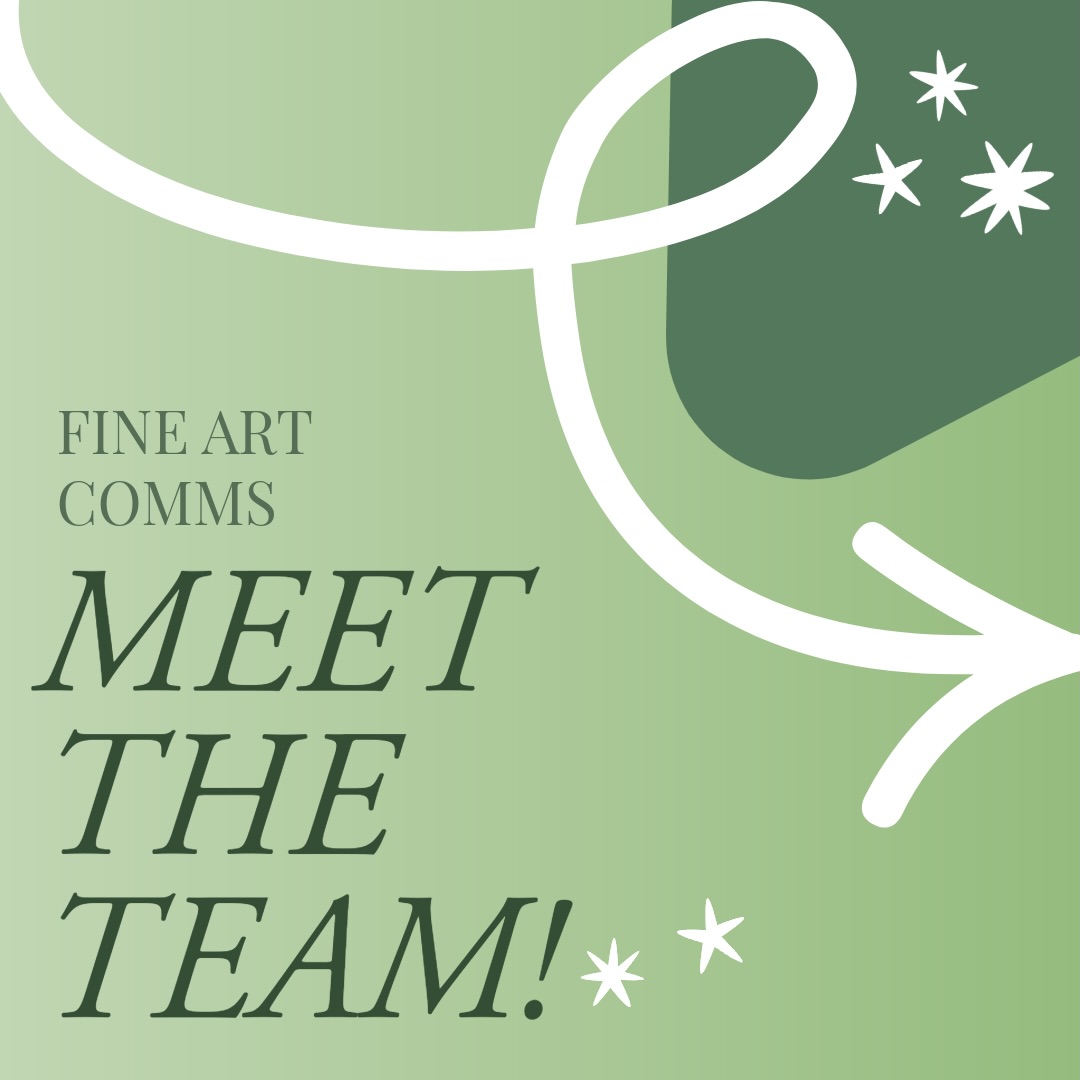
norwichuni_fineart Introducing our Fine Art Instagram team!✨ We are a student-led group (initiated and supported by Sarah Longworth-West), representing Year 1, Year 2, and Year 3 BA Fine Art Students! Together, we aim to highlight and celebrate the diversity, experimentation and critical thinking that shape our course. We can’t wait to share more of what our community creates! – #fineart #norwichuniversityofthearts #norwichuniversity (opens in a new window)
-
